
CORINNA BARRETT LAIN’S GROUNDBREAKING RESEARCH ON LETHAL INJECTION


CORINNA BARRETT LAIN’S GROUNDBREAKING RESEARCH ON LETHAL INJECTION
Repairs were required after a tree fell on the law school in early November, but the building showed off anyway dressed in winter whites.
Photograph by Jamie Betts
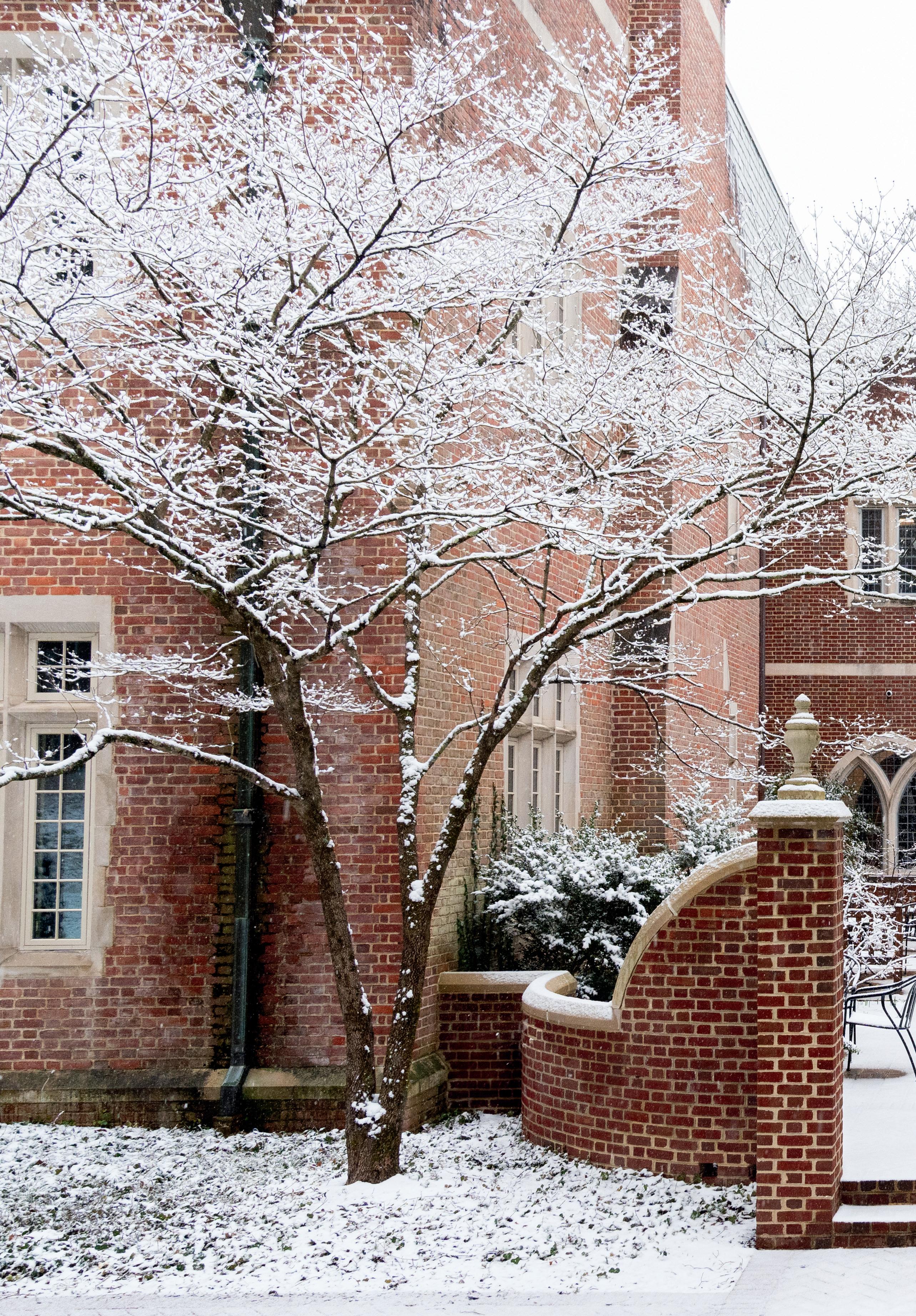
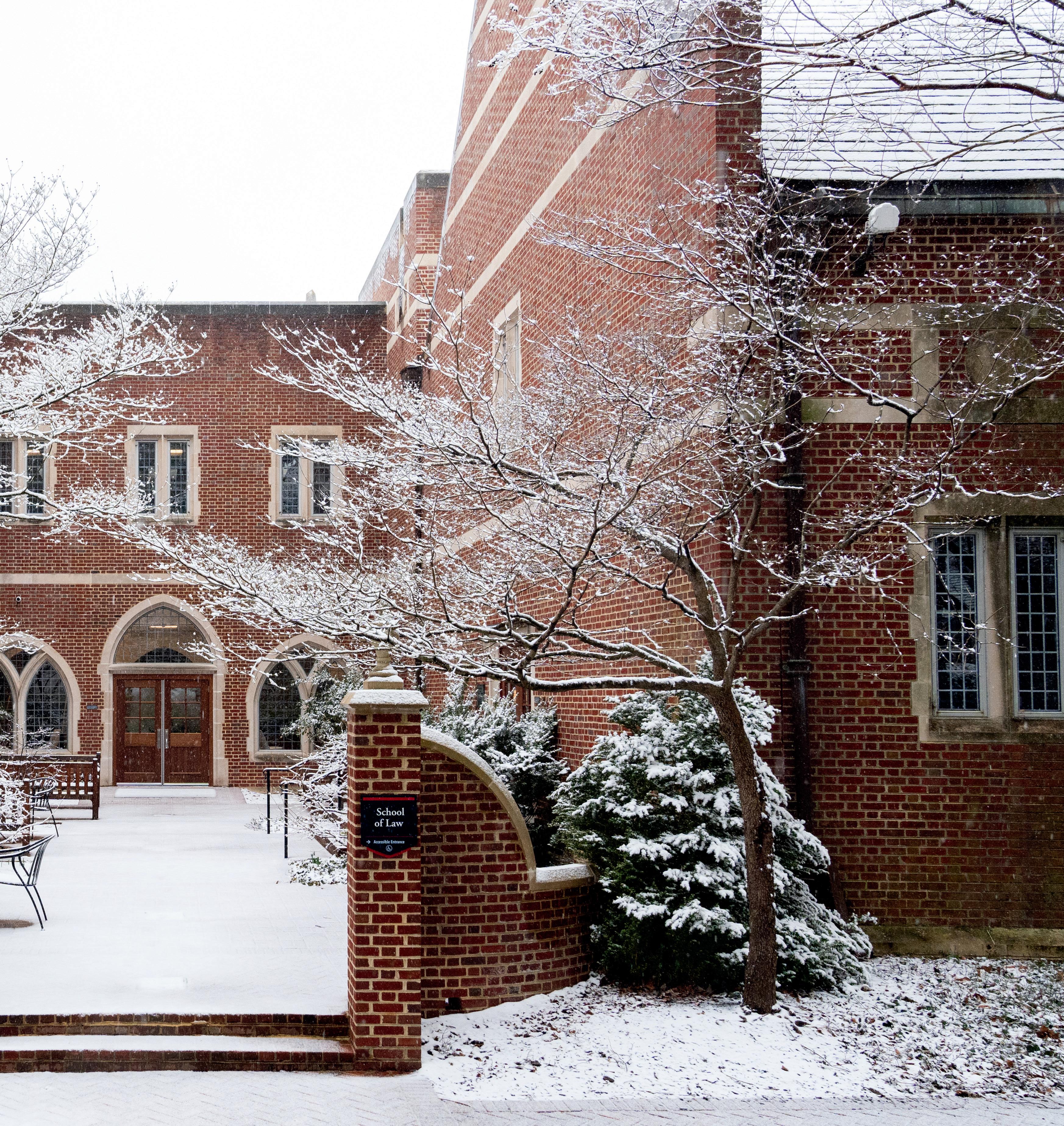
DEAN’S LETTER
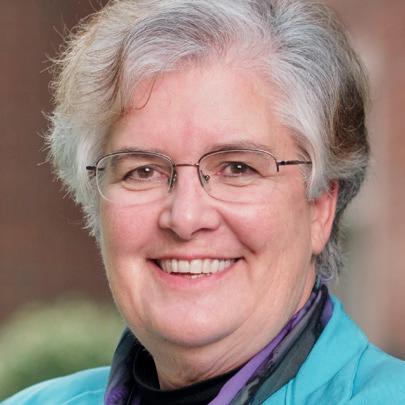
Dear friends,
Earlier this spring, I announced my decision to step down as dean of Richmond Law at the end of the 2025–26 academic year. After 14 years at the helm, I concluded that the time has come to pass the reins of leadership to a successor who will undoubtedly guide the law school toward a bright future.
Throughout my tenure, my North Star has been the firm belief that we are preparing the next generation of legal experts to master the law and drive meaningful change. My decisions have been shaped by a steadfast commitment to ensuring that our graduates are equipped to be the leaders, advocates, and innovators of tomorrow.
Our faculty exemplify this principle, not only through their excellence in teaching, but also in their research, scholarship, and advocacy. From testifying before Congress on patent reform to representing nations before the International Court of Justice, this issue of Richmond Law magazine explores how our faculty are at the forefront of shaping policy, influencing judicial decisions, and advocating for justice.
We also hear from Anthony Vittone, R’90 and L’93, chief operating officer of DroneUp, who is helping to shape the future of the drone industry by navigating regulatory challenges, securing FAA approvals, and influencing drone legislation—all while demonstrating how a legal education can be a foundation for leadership beyond the traditional practice of law.
As I approach my final year as dean, I am more grateful than ever for the extraordinary faculty, students, alumni, and colleagues who make Richmond Law such a vibrant and inspiring community. Your dedication, innovation, and unwavering commitment to justice continue to shape the legal profession, and I have no doubt that the law school’s legacy of excellence will only grow in the years ahead.
Thank you for your support, your passion for the law, and your belief in the transformative power of legal education.
Best, Wendy C. Perdue Dean and Professor of Law
Richmond Law
DEAN
Wendy C. Perdue
DIRECTOR OF COMMUNICATIONS AND MARKETING
Renee Russell
University Communications
SENIOR WRITER/ EDITOR
Rayne Miller
SENIOR EDITOR
Matthew Dewald
ASSOCIATE VICE PRESIDENT FOR CREATIVE AND DESIGN SERVICES
Samantha Tannich
DIRECTOR OF DESIGN SERVICES
Katie McBride
GRAPHIC DESIGNERS
Ashley Gladner
Gordon Schmidt
CONTACT
lawalumni@richmond.edu
804-289-8028 law.richmond.edu
CHANGE OF ADDRESS
800-480-4774, Ext. 7 lawmagazine @richmond.edu
© 2025 University of Richmond School of Law. This publication may not be reproduced in whole or in part without express permission from University Communications.
Richmond Law, of which this is Volume 37, Number 2, is produced by the Division of University Communications in partnership with Richmond Law. It is published biannually for alumni and friends of the University of Richmond School of Law, University of Richmond, VA 23173.
COVER Photograph by Megan Garrison
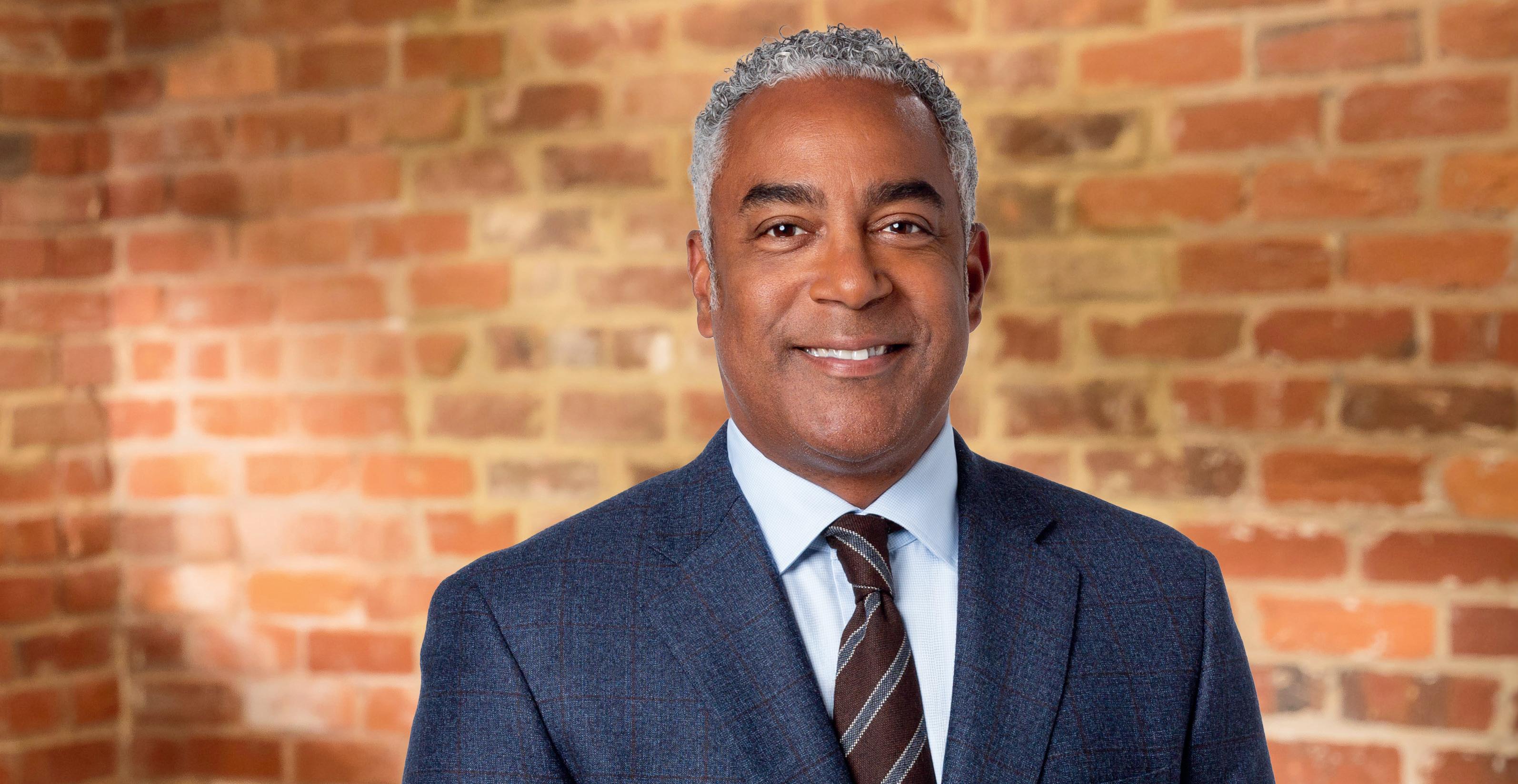
14
Meet the lawyer with a creative bent who made headlines revolutionizing drone delivery capabilities.
24 18
Five Richmond Law professors made realworld impact with their recent research accomplishments.
Professor Corinna Barrett Lain pulls back the curtain on more than 45 years of lethal injection in the U.S.
4
3L students win first place at National Veterans Law Moot Court Competition.
New professor Tom Donnelly encourages students to find their passion in law.
Professor Tara Casey discusses how to cultivate a culture of service.
12
Marissa Jackson Sow’s latest work aims to democratize access to legal knowledge.
29
Class Notes
Leah Stiegler, L’15
Derrick Walker, L’00

» THE OPPONENTS
Clendining and Mays claimed victory over 27 teams from 19 law schools, including Baylor, George Washington, George Mason, South Texas, and Villanova.
Richmond Law once again displayed its excellence on the national stage, securing a first-place victory in the 2024 National Veterans Law Moot Court Competition. The event, which drew 28 teams from 20 law schools across the country, showcased the unmatched legal skills of 3Ls Savanna Clendining and Mimi Mays.
“Being this year’s national champions is surreal,” said Clendining. “I have competed in team sports, academic competitions, and military school for many years, but this is my first time finishing in first place. It’s fun to humbly revel in and share this achievement with Mimi.”
Their victory was preceded by an uphill battle in the finals. Having represented the petitioner throughout the competition, they were required to argue off-brief in the championship round, switching sides to defend the respondent—a position completely at odds with their original arguments.
“This is incredibly difficult and made their victory that much more significant,” said Tom Herthel, of counsel at the National Veterans Legal Services Program, who coached
the team along with Vieng Siklar, appeals director at the Virginia Department of Veterans Appeals, and Stacy Tromble, litigation director at NVLSP.
“In my four years of coaching our teams, this was the most challenging problem yet,” Herthel said. “Mimi and Savanna did a truly outstanding job in all phases of the competition and represented Richmond Law with distinction.”
To prepare for the competition, Mays and Clendining dedicated approximately 100 hours to researching, drafting a 30-page brief, and honing their arguments. According to Clendining, the team’s victory relied on the combination of this preparation and the mental agility needed to advocate for both sides of the case.
“My biggest takeaway … is that moot court training teaches law students how to respond and
smoothly go back into your planned arguments, but judges would rather you be authentic and thoroughly think through their questions
“In my four years of coaching our teams, this was the most challenging problem yet.”
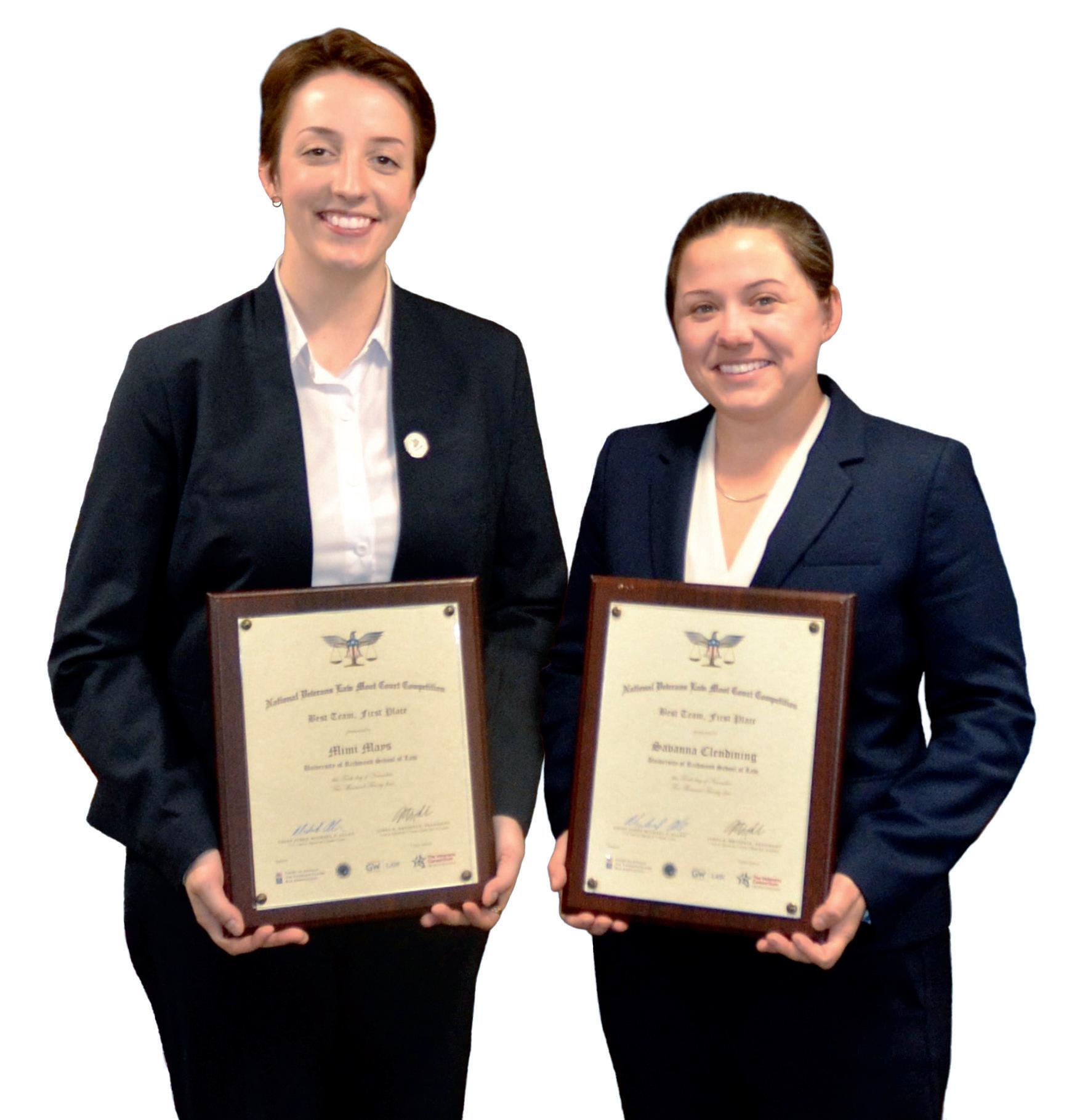
than simply make all of your points,” Clendining said. “Our success was largely due to our painstaking understanding of the facts and procedural history of the problem, the legal issues, and the history and current thought about our respective issues.”
This is Richmond Law’s second NVLMCC championship in three years. According to one of the court’s clerks, Richmond is becoming a force to be reckoned with in this competition.
LEADERSHIP IN MEMORIAM
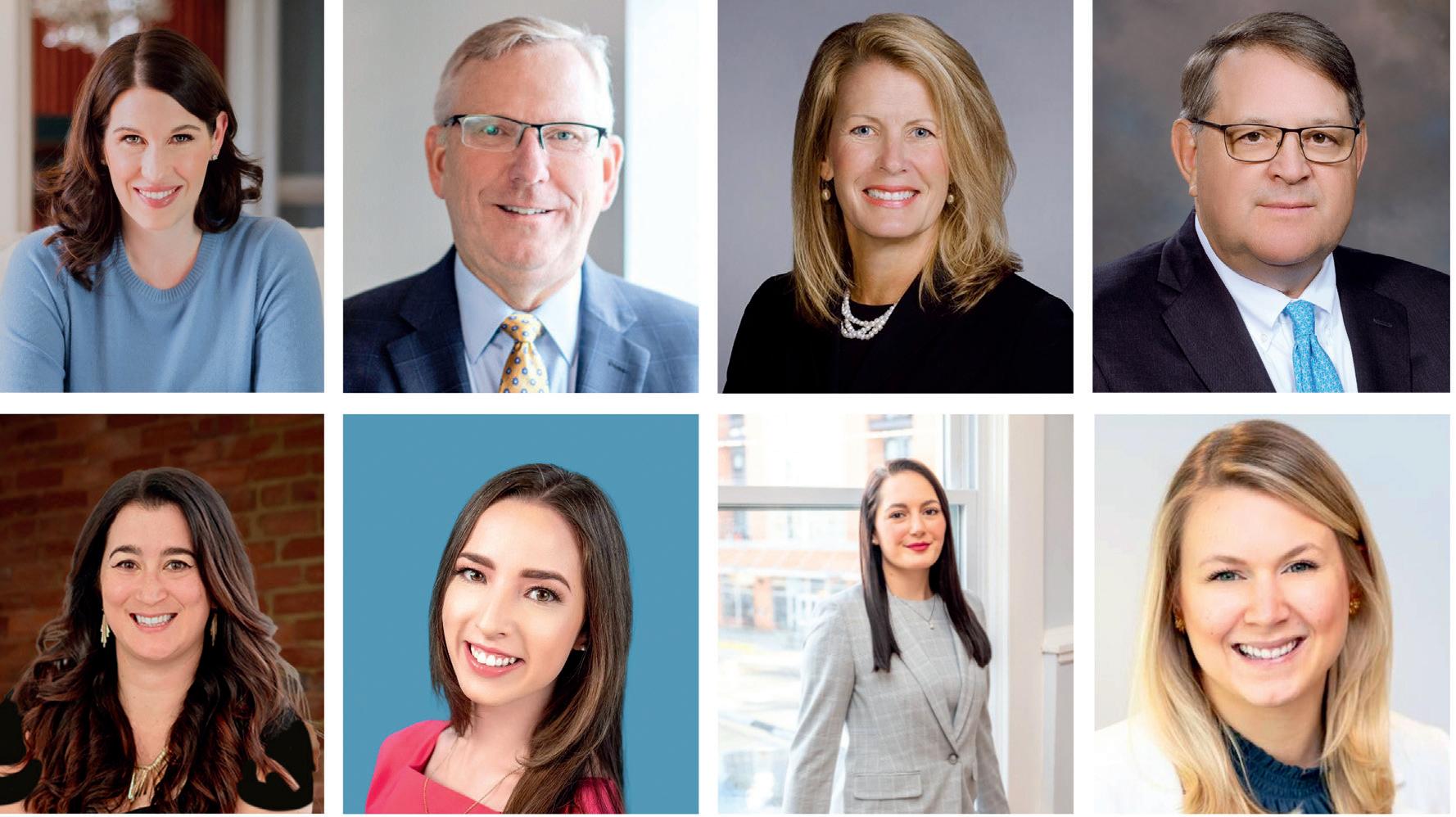
Virginia Lawyers Weekly named four Richmond Law alumni in its 2024 class of Leaders in the Law, with four additional alumni recognized as Up & Coming Lawyers. This recognition highlights their dedication, leadership, and contributions to Virginia’s legal community.
LEADERS IN THE LAW
• Gerald C. Canaan II, L’91
• Guy C. Crowgey, L’86
• Mary Elizabeth “Betsy” Davis, L’97
• Sarah Robb, L’08
The Leaders in the Law designation celebrates attorneys who have made outstanding contributions to the practice of law in Virginia, recorded significant achievements through the
COMMONWEALTH
Virginia Business celebrated the 25th edition of its Legal Elite list, honoring Richmond Law alumni.
Ed Barnes, L’72; William Bayliss, L’74; Steve Benjamin, L’79; Craig Cooley, R’69, G’75, and L’77; and Andrea Stiles, L’86, have been named
practice of law, demonstrated leadership in improving the justice system, and made important contributions to Virginia’s legal community and/or the community at large.
UP & COMING LAWYERS
• Brandy Brown, L’20
• Danielle B. Kent, L’15
• Kasey Hoare Michelle, L’17
• Mary Margaret Thacker, L’21
The Up & Coming Lawyers program recognizes attorneys who, in their first 10 years of practice, have been making a name for themselves and displaying the determination and accomplishments that establish them as leaders of the future.
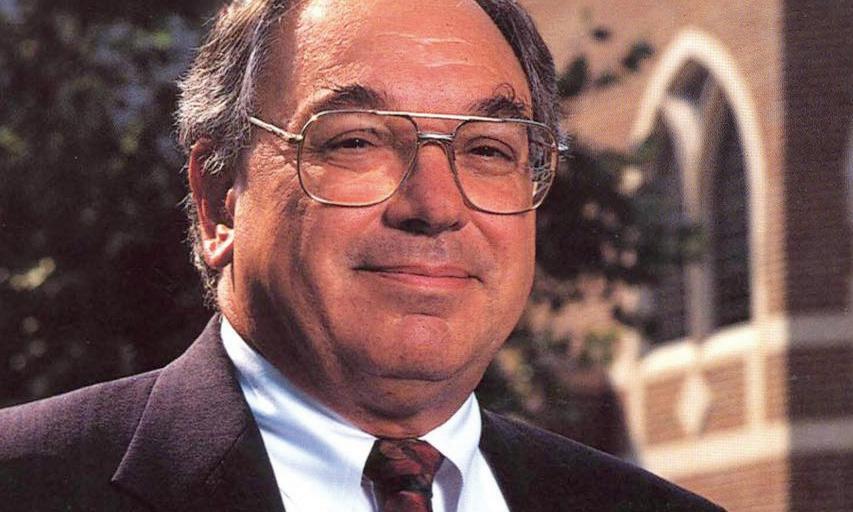
Richmond Law mourns the passing of Joseph D. Harbaugh, who served as dean from 1987 to 1995. Harbaugh died Oct. 11, 2024, at the age of 85.
Harbaugh’s tenure marked a transformative chapter in the history of Richmond Law, generating its rise as one of the most respected small law schools in the nation. Known for his visionary leadership, Harbaugh was admired by students, faculty, and alumni alike.
“Joe Harbaugh was one of the most highly respected law school deans ever to serve at the University of Richmond,” said W. Clark Williams, professor emeritus, who served on the search committee that recruited Harbaugh. “His energy and enthusiasm were transparent and contagious.”
When Harbaugh took the helm, he set an ambitious agenda focused on four key areas: strengthening the student body, expanding the faculty, modernizing the building, and creating a forward-looking curriculum that addressed the evolving complexities of modern law. Under his guidance, the school saw improvements in all of these areas, including the addition of new full-time faculty, increased classroom and library spaces, and the addition of the school’s moot courtroom, which continues to serve as a vital space for the community.
“Dean Harbaugh’s leadership set the stage for the school we have become,” said Dean Wendy Perdue. “I am grateful for the legacy of excellence he has left us.”
among Virginia’s Legal Elite every year since the list’s inception in 2000. Professor Tara Casey was named in the Legal Services/Pro Bono category, and Jamie Wood, L’21, appeared in the Young Lawyer category.
Harbaugh’s academic career began in 1968 when he joined the faculty of the University of Connecticut School of Law. He went on to be a law professor at seven universities and taught as a visiting or adjunct professor at several other law schools.
“Thank you, Dean Harbaugh, for the wonderful legacy you have given us,” Williams said. “May we honor your memory by always striving to keep it strong.”
When media outlets cover news and events, they come to Richmond Law for expertise and perspective. Here’s a sample of recent stories that feature our experts.

Trademark law expert Ashley Dobbs, L’05, is quoted in “The Utah … Mammoth? Outlaws? N.H.L. Team Puts Its Name to a Vote.”
“Sports teams are limited by their desire to resonate with local preferences and convey characteristics like fierceness,” she said. “We’re running out of words. … Any franchise picking a mascot going forward would have to do their branding homework.”
With four major victories, Richmond Law’s Institute for Actual Innocence saw a banner year in 2024.
In December, President Joe Biden commuted the death sentence of client James Roane along with the home confinement sentence of Amber Gauch.
In June, the Virginia Court of Appeals exonerated Marvin Grimm, who had spent 45 years in prison for a crime he did not commit. In April, the Virginia Court of Appeals commuted Leshay Rhoton’s 20-year sentence to 12.5 years.
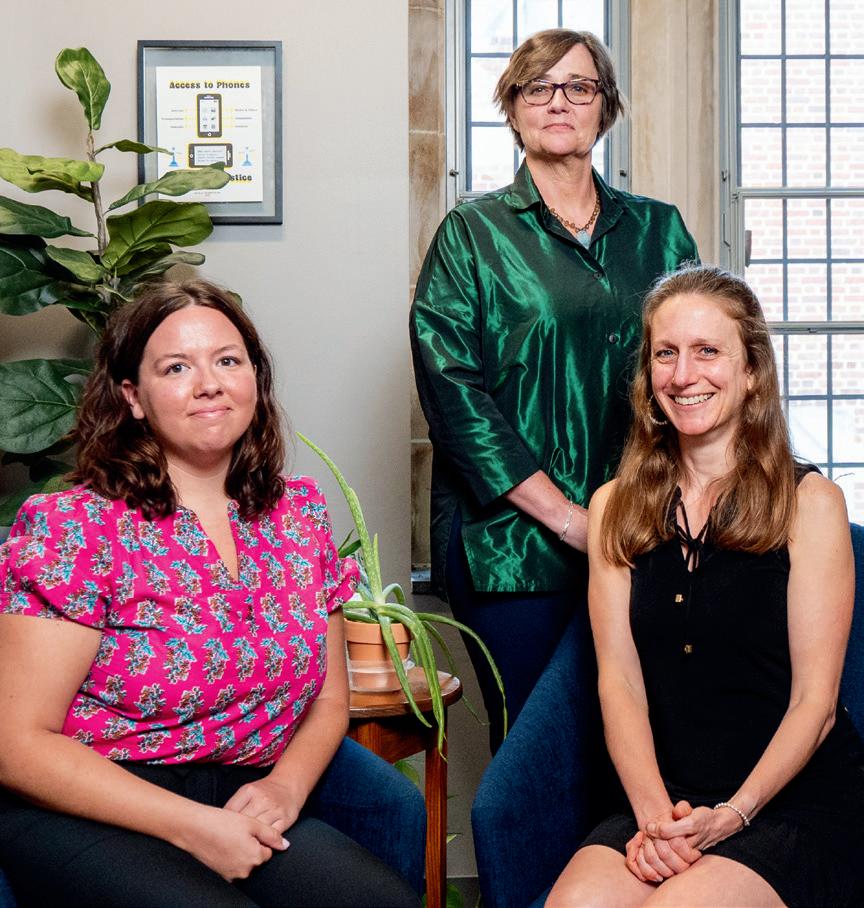
Energy law expert Joel Eisen is quoted in “Demise Of Humphrey’s Executor Could Sow Chaos At FERC.”
“I don’t know if something as ambitious as [policy overhaul] Order 1920 would get done in an environment where FERC didn’t have independence,” he said. “One thing you would see is a real cutback on agency policy ambition.”

Rebecca Crootof is quoted in “Inside the Plan to Teach Robots the Laws of War.”
An expert on autonomous warfare, she is quoted on ethical guidelines for automated weapons. “It would be useful to show more definitively whether or not we can or can’t capture ethics with a computer.”
Danielle Wingfield, L’14, authored “Henry Marsh Taught Us the Power of Persistence,” writing that “Marsh’s legal battles were instrumental in dismantling school segregation in Virginia and beyond. His election as Richmond’s mayor in 1977 marked a historic turning point for the city and its Black community. And his decades in the Virginia Senate brought meaningful change to civil rights, education and equality across the commonwealth.”
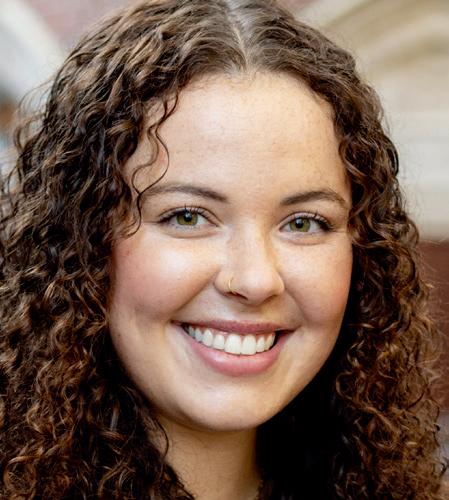
Gracie Elliott, L’25, has a passion for advocating for her classmates. Hailing from Kentucky, Elliott had initially set her sights on several other law schools. A single visit to Richmond Law changed everything.
“When I stepped on campus ... I knew this was where I needed to be.”
Elliott’s experience at Richmond Law has been nothing short of transformative, culminating in her latest role as president of Richmond Law’s Student Bar Association for the 2024–25 academic year.
Her journey in the SBA began in her 1L year, and she worked through various positions before taking on the role of president.
“Being involved in SBA has opened doors to connect with students I would not have otherwise met and to make a difference in their law school experience,” Elliott said.
As SBA president, her goals include transparency, communication,
and fostering a sense of community. She believes in creating open lines of dialogue between students and the administration to ensure that student concerns are heard and addressed.
“I want to be approachable, for students to feel comfortable coming to me with their concerns, even if I can’t always fix them,” she said.
One aspect of her journey to which she credits her success is the financial support she has received through scholarships.
“It has eased the financial burden of attending a private institution and helped me feel more confident in my decision to come to Richmond,” Elliott said. “Any financial support reduces the stress of paying off loans later and makes it easier to focus on what really matters: pursuing a career that I’m passionate about.”
As she reflects on her journey so far, Elliott is filled with gratitude— not only for the support she has received, but also for the community she’s been able to help shape.
Q&A With a new turn in his multifaceted career, professor Tom Donnelly joins the Richmond Law faculty, encouraging students to “find your passion in the law.”
WHAT BROUGHT YOU TO RICHMOND LAW?
I knew that Richmond Law had an amazing public law faculty, but when I first visited the campus, I was most impressed with the collegiality of the place. In all of my conversations with students, faculty, and staff, everyone spoke of the cooperative and kind atmosphere, and I could feel it myself as soon as I set foot on campus.
HOW WOULD YOU DESCRIBE YOUR CAREER PATH TO THIS POINT?
Circuitous but rewarding. I’ve always tried to pursue opportunities that would allow me to both continue to learn new things and serve the public in meaningful ways. After law school, I clerked on the U.S. Court of Appeals for the Third Circuit.
Following that, I was able to find a nice combination of scholarly and practical experi-
ences—teaching at great places like Penn and Harvard; studying with terrific scholars at Princeton; serving as a public-interest lawyer in Washington, D.C., where I worked on an awesome mix of Supreme Court amicus briefs, legal commentary, and communications strategies around judicial nominations and blockbuster Supreme Court cases; and serving as chief content officer at the National Constitution Center in Philadelphia. Now, I get to teach at a fantastic law school. I’ve been very lucky.
WHAT ADVICE WOULD YOU GIVE TO CURRENT RICHMOND LAW STUDENTS FOR THE COMING YEAR?
Harness the energy and expertise of our amazing faculty, and find your passion in the law. I love constitutional law, but I’ve had friends that have fallen in love with pretty much every area of the law. If you’re a
fellow constitutional nerd ... or want to learn from someone who loves the Constitution and loves to teach, please don’t hesitate to enroll in one of my classes.
“I’ve always tried to pursue opportunities that would allow me to both continue to learn new things and serve the public in meaningful ways.”

WHAT WOULD YOU RECOMMEND THAT STUDENTS DO OUTSIDE OF LAW SCHOOL?
Remain connected to the people and things that you love. Law school can be such an all-encompassing experience that we can sometimes forget to continue to be full human beings. So if you love Stephen Sondheim musicals, spend 20 minutes listening to some of your favorite numbers from Sunday in the Park With George or Company. If you love to watch sports or reality TV or classic films, continue to carve out time to watch them. If you love to go to concerts or to the theater, schedule a special outing or two each semester with some friends. If you haven’t talked to your family or your best friend in a while, get in touch with them. If you have a significant other, continue to make time for them. Don’t let law school swallow you whole.

« FIRST IMPRESSIONS
“I’ve been struck [by] how kind and generous everyone has been, whether it’s sharing ideas about how to organize my classes to the best schools and activities for my children to the best neighborhoods to raise a family to every small detail surrounding my move.”
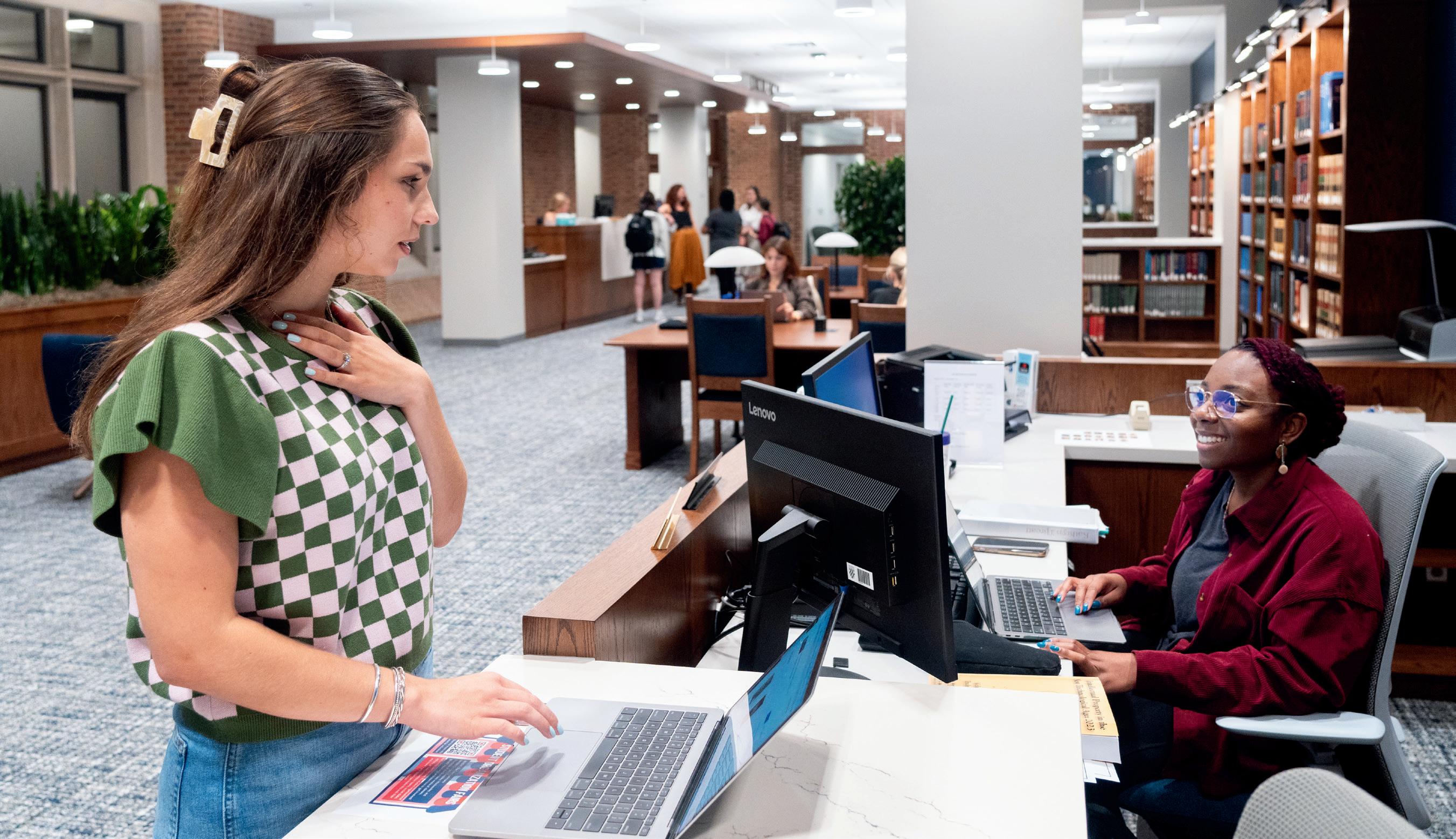
Each year, various publications release rankings, offering perspectives on educational institutions from elementary schools to global universities. Within the competitive field of higher education, these rankings offer a position on specific elements of the academic experience, yet rankings tell only part of the story. They do not fully capture the vibrant and evolving nature of an institution.
Take, for example, the U.S. News & World Report rankings. Richmond Law currently holds the No. 71 spot among nearly 200 law schools on its “Best Law Schools” list. This number is a snapshot in time and may shift from year to year. Regardless, one thing remains constant: the strength of a Richmond Law education. Law school rankings are largely determined by past employment and bar passage outcomes, meaning that new initiatives introduced today will not be reflected in rankings until 2029. Recent methodology changes have also caused significant ranking fluctuations. In 2023, U.S. News dramatically increased the weight of full-time employment and bar passage, resulting in major shifts: 76 schools moved 10 or more places, and 35 schools moved 20 or more places.
Richmond Law graduates thrive in both employment and bar passage as demonstrated through these outcomes:
• In 2023, 92.1% of new graduates seeking employment secured positions within 10 months; 98.5% of those roles were bar-passage-required or JD-advantaged.
• Among 2023 graduates, approximately 70% took the Virginia bar exam and achieved a 75% pass rate, while the remaining 30% took the bar in another jurisdiction and achieved an impressive 95% pass rate.
• Richmond Law’s ultimate bar passage rate—those who pass within two years of graduation—stands at 93.6% for the Class of 2022.
While rankings may serve as a reference point, they do not define the true value of a law school experience. What matters is the exceptional quality of a Richmond Law education and the tangible successes it produces.
Richmond Law’s strength lies in the supportive community, the remarkable career paths of alumni, and the nationally recognized scholarship of the faculty. The values and commitment of Richmond Law remain: to provide an exceptional legal education that prepares students for meaningful and rewarding careers.
by
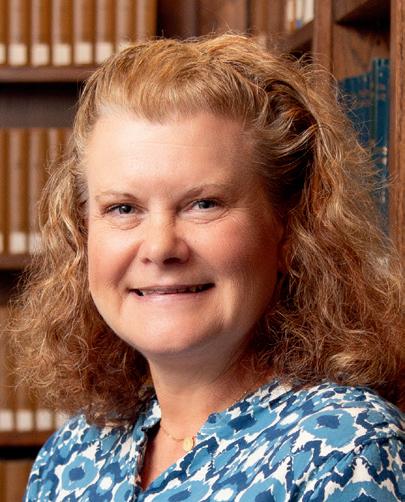
Professor Kristen Osenga is making an impact on national policy.
The RESTORE Patent Rights Act of 2025 was introduced in Congress in February, and Osenga’s expertise was cited in support of the bill.
This bipartisan legislation aims to strengthen protections for U.S. inventors, startups, and entrepreneurs by
CAMPUS
restoring the presumption of injunctive relief for patent holders.
“[RESTORE] is a crucial step in safeguarding America’s small businesses ... from predatory patent infringement,” said Osenga. “By providing a clear path for justice and injunctive relief, this bill empowers innovators and fosters a more equitable patent system that benefits American inventors and consumers.”
Read more about Osenga’s work on Page 20
‘A sense of pride’
Richmond Law represented at this year’s Spider Dash 5K race, including the Thury family pictured here. Here’s what Rachel Slaughter Thury, L’27, had to say about their experience:
“My family and I had a blast doing the 5K. We decided to do it because we wanted to do something together as a family that would be a challenge and instill a sense of pride in accomplishing a goal.
“The entire experience was great. Richmond has a gorgeous campus, and we loved getting to run through it. My kids especially loved going over the bridge and seeing the ducks and geese on the lake, and I enjoyed giving a mini tour of campus as we ran through the course.
“This was our first 5K as a family, and my kids have already asked when we can do another.”
Interested in joining the Thury family next year? The next Spider Dash will be in February 2026.
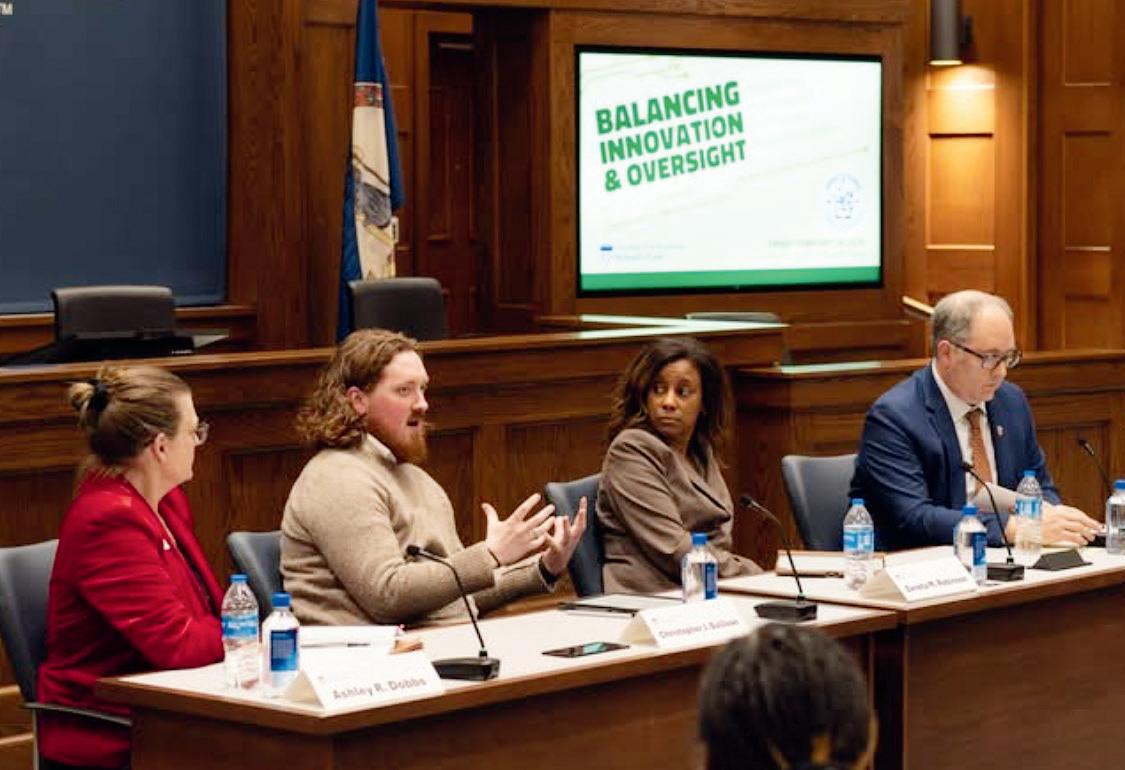
The University of Richmond Journal of Law and Technology (JOLT) Symposium celebrated its 31st year with the theme Balancing Innovation and Oversight.
The event explored the intersection of innovation and oversight across three key industries:
• Constitutional rights and technology with professor Margaret Hu of William & Mary Law School; Anne Toomey McKenna, visiting Richmond Law faculty member; and Marc Canellas of the Maryland Office of the Public Defender, moderated by professor Tom Donnelly.
• Business and technology with professor Hilary Allen of American University Washington College of Law, professor Sergio Alberto Gramitto Ricci of Maurice A. Deane School of Law at Hofstra University, and professor Christopher Bruner of the University of Georgia School of Law, moderated by professor Andrew Spalding.

• Intellectual property and technology with professor Ashley R. Dobbs, professor Zaneta Robinson of Wake Forest University School of Law, and Christopher Sullivan of Ritter Law, moderated by Dean Roger Skalbeck.
In the Trial Advocacy Board Intrascholastic Competition in January, 2Ls Spencer Hamilton and Bradford Dudley emerged as the overall champions after a final round in the trial of State v. Winston.
Other notable wins included Leo Piazza, ’23 and L’27, earning the Slimak Top Oral Advocate award and Olivia Day, L’27, receiving the Douglass Spirit of Oral Advocacy award.
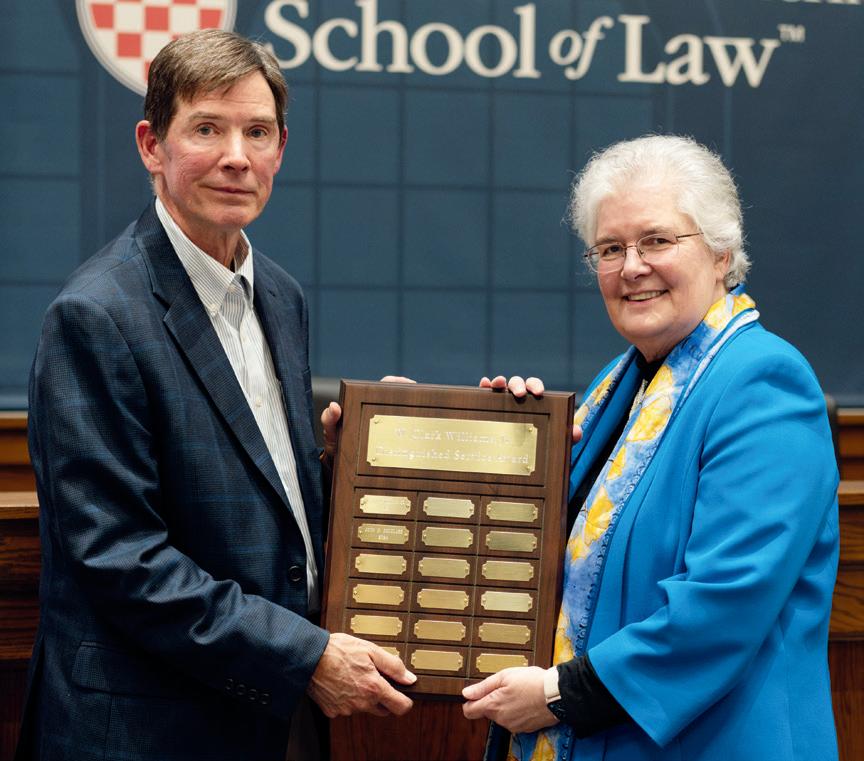
At a retirement celebration in December 2024, Richmond Law honored John Douglass’ remarkable career as both professor and dean and announced him as the second recipient of the W. Clark Williams Distinguished Service Award. Douglass leaves an enduring legacy, having ignited many students’ passion for the law.
Here’s what some of his friends, colleagues, and former students had to say:
“Professor Douglass’ classroom was characterized by an infectious energy and a palpable joy for intellectual exploration. This, combined with his deep passion for both the law and the art of teaching, made him a true gem at the University of Richmond. I am fortunate to have been his student.” —Brian Moore, L’04
“As you prepare for what’s next, I want to express just how much your presence has meant to me and to so many at Richmond Law. Your guidance and support during my time as a student were pivotal in shaping my path to becoming a professor, and I’m deeply grateful for your belief in me from the very beginning. Your contributions and dedication will resonate here for years to come, and your legacy will continue to inspire.” Danielle Wingfield, L’14
“It has been such a pleasure and privilege to have had you as a colleague. As a dean, I know that I stood on your shoulders and I feel incredibly fortunate to have been able to build on the legacy that you left as dean. … Throughout your career, you have modeled excellence in every dimension— as a teacher, a scholar, a mentor, and an engaged professional dedicated to advancing justice. I wish you all the best in your retirement.” —Dean Wendy Perdue
“I love this school. I’m grateful for the opportunity to advocate for my peers.”
INCLUSIVITY

How can I be my whole self and be a lawyer? In what kind of workplace environment will I thrive?
These are some of the questions being explored in the law school’s new “Belonging in Practice” cultural competency series led by Sara Tandy, L’19, assistant dean of diversity, equity, inclusion, and belonging.
“Cultural competency and professional identity are important areas and lie squarely in line with belonging, inclusion, our sense of self, our identities, and who we want to be as lawyers,” Tandy said. “The goal is to help students navigate that professional identity while embracing their authentic selves.”
The series aims to assure students that success in the legal profession does not require them to abandon their identity. It encourages them to find environments where they can thrive authentically. It emphasizes the importance of how personal values, cultural backgrounds, and unique traits can positively contribute to one’s legal practice.
“We want students to understand they should never feel the need to change who they are,” Tandy said.
“Rather, they should find environments where they can flourish while being fully themselves.”
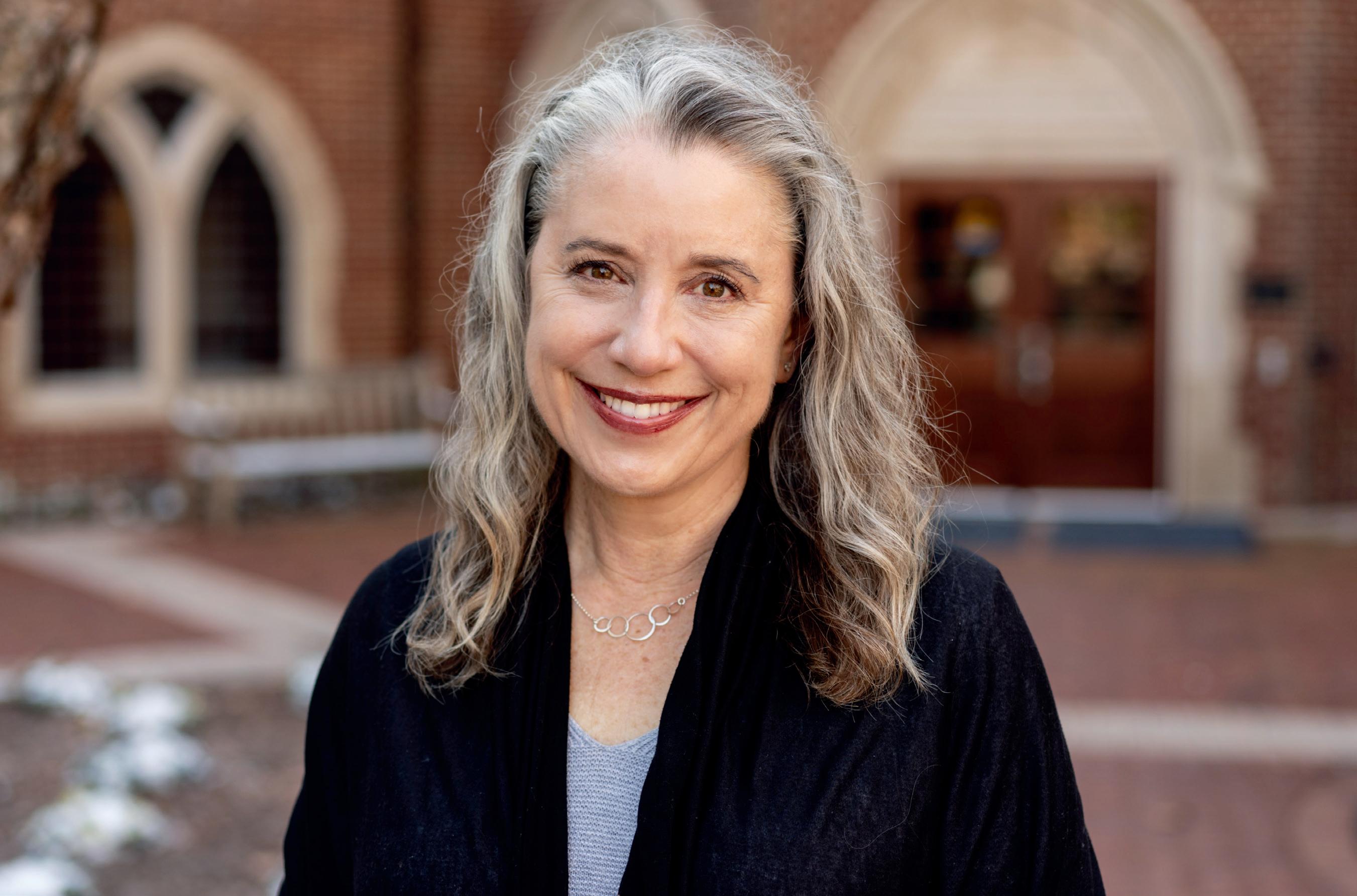
IN BRIEF In a recent issue of Virginia Lawyer magazine, professor Tara Casey explains how Richmond Law is cultivating a culture of service in the next generation of legal professionals.
In 2024, more than 20% of Richmond Law graduates earned the Carrico Center Pro Bono Certificate, awarded to those who complete 120+ hours of service during their three years of law school. Collectively, the Class of 2024 recipients performed more than 5,000 hours of service.
Here’s an excerpt of Tara Casey’s interview with Virginia Lawyer magazine on the matter: •
We have a big-tent mentality at the Carrico Center for Pro Bono and Public Service at the University of Richmond School of Law. We have students who come into the tent who have already made service a priority in their lives—they will pitch in wherever the need is, in whatever capacity it is needed. We also have students who come into the tent who are curious about a particular area of law and wish to learn more: Is family law the path for me? How does civil litigation compare to criminal litigation?
Lastly, we have students who come into the tent who are interested in building their professional network, working alongside attorneys in the area and benefiting from their mentorship. And that is the great thing about having a big-tent mentality— there’s plenty of room for everyone.
My goal as the director of the Carrico Center is to ensure that every student, whatever the reason they have for coming into the tent, gains something as they give something. That something may be a better understanding of how a legal issue has contributed to a broader societal issue. That something may be greater confidence in oral advocacy or legal writing. That something may be insight into connecting the dots between a subject area that interests them and how it is applied in practice. That something may be meeting attorneys both new to practice and at the end of their careers and gleaning from them the wisdom that all the stages can offer.
Through this experience, we hope not only that students develop a habit of service that will continue into their postgraduate lives, but that they will develop the invaluable skills that will make them thoughtful and skilled members of the profession.

« WHO CARES ABOUT PRO BONO?
Visit law.richmond. edu to read what Richmond Law students and alumni said in response to the question, including: Justice Stephen R. McCullough, L’97; Justice Teresa M. Chafin, L’87; Kimberly MacLeod, L’96; Joanna Suyes, L’07; Benedict Romer, L’25; and David DePippo, L’02.
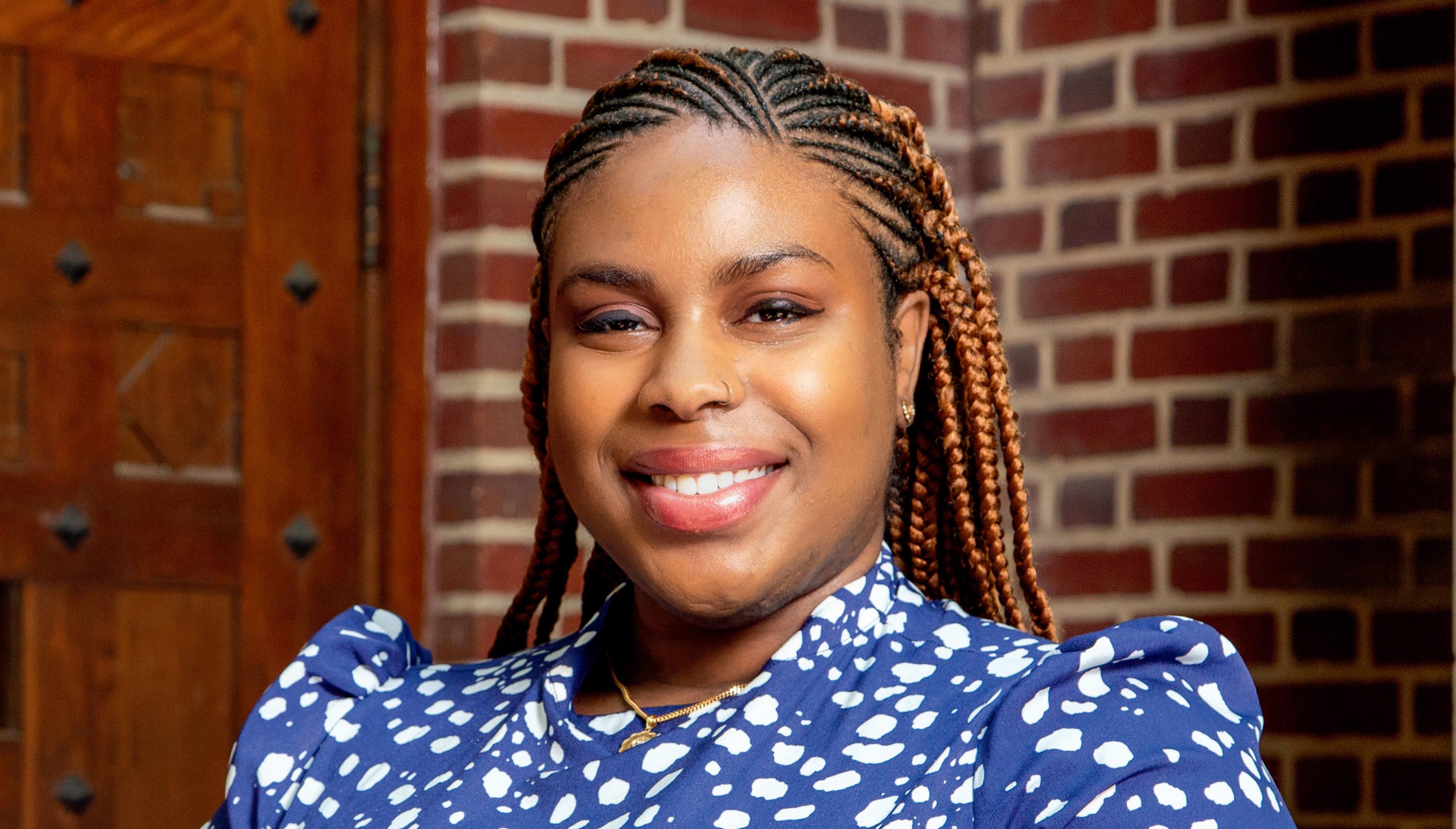
Professor Marissa Jackson Sow’s insatiable thirst for knowledge was evident from a very young age.
“I would just skip through the school day,” she said. “My mom would take me to the library and to museums after school just to keep me occupied.”
Born into a family of educators and scholars, Jackson Sow describes her childhood as one connected closely to the social sciences.
“We would attend all kinds of meetings and protests because my parents were very socially conscious and civically engaged. I thought everybody was doing it!”
This exposure to the intersections of education, social consciousness, and the humanities laid the foundation for the career Jackson Sow now has at Richmond Law.
After a decade of practicing law in New York City, Jackson Sow’s desire for knowledge lead her to the lectern. In 2020, she joined the Richmond Law faculty, bringing her dynamic vision to the community through her teaching and scholarship.
Her latest initiative, the Law and Liberation Lab, is a digital repository that aims to democratize access to legal knowledge. Created from a fellowship she received from the Open Society Foundations, the lab curates openaccess materials that connect legal concepts with visual arts, music, and history.
The lab’s first repository, “Contemporary Black Feminist Thought and the Law,” launched in 2024, with others—including “Race and the Constitution”—set to debut in 2025.
“These repositories are designed to make legal education accessible to everyone,” she said, having designed the repositories to have the look and feel of an art exhibit.
“I’m really into museums and exhibits and visual anthropology and the democratizing effects that those can have,” she said. “Everybody should be able to participate. Whether you’re a student, an educator, or an engaged community member, you can find resources here to deepen your understanding.”
Jackson Sow’s approach underscores her belief that law is both a social science and part of the humanities. “Law isn’t just about rules and cases,” she said. “It’s about understanding society and empowering people to engage with the structures that shape their lives.”
Jackson Sow’s focus remains on expanding the reach of her repositories, fostering student engagement, and advocating for a more inclusive legal academy.
“I want to bring texture to legal education,” she said. “Law shouldn’t be confined to ivory towers. It should be a tool for everyone to understand, challenge, and shape the world around them.”
—Renee Russell
by Kim Schmidt
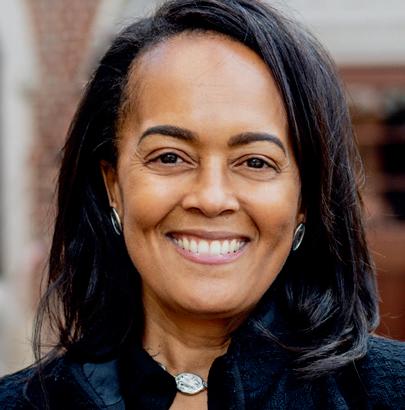
CAROL BROWN ’s article “A Civil Rights Defense of Gentrification” was published in Temple Law Review She also authored “Investigating Appraisal Discrimination” for the ABA Real Property, Trust and Estate Law Section.
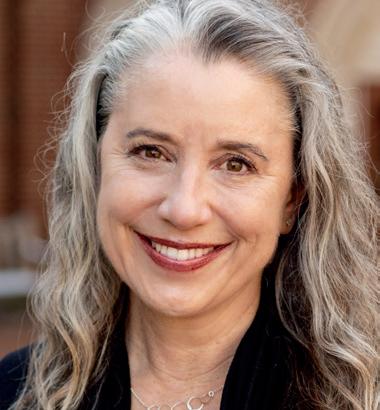
TARA CASEY was awarded the 2024 George H. Hettrick Pro Bono Leadership Award by the Greater Richmond Bar Foundation. The award recognizes outstanding efforts, innovative thinking, and visionary leadership in the pro bono space. She was also recognized in the 2024 Virginia Business Legal Elite listing in the “Legal Services/Pro Bono” category.
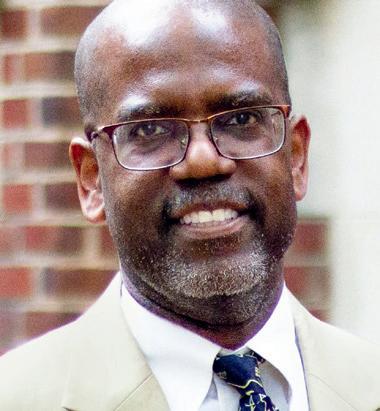
HENRY CHAMBERS published “Protecting Minority Representation in an Era of Political Polarization and the Hollowing Out of Voting Rights Protections” in Washington & Lee Law Review
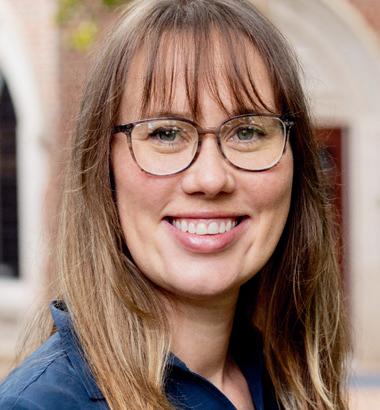
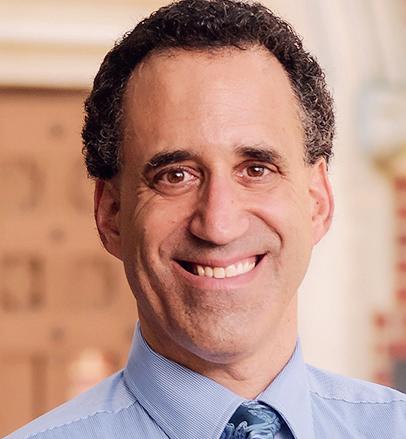
LAUREN CLATCH ’s article “Interrogating Miranda’s Custody Requirement” is forthcoming in North Carolina Law Review
JOEL EISEN ’s article “Utilities With Purpose,” written with Heather Payne of The Ohio State University Moritz College of Law, was selected as one of the top five environmental law journal articles of 2024. This is one of the highest honors in the field of environmental law and the second time Eisen has received this national recognition.
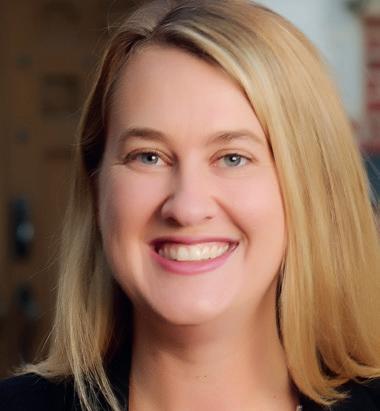
JESSICA ERICKSON published “Paying for Performance: Attorneys’ Fees in Securities Class Actions” in Journal of Empirical Legal Studies, and her article “The Business of Securities Class Action Lawyering” will be reprinted in the Corporate Practice Commentator, which gathers the best examples of corporate legal theory and practice each year for distribution to practitioners. Her article “Litigating on Main Street” is forthcoming in Journal of Corporate Law
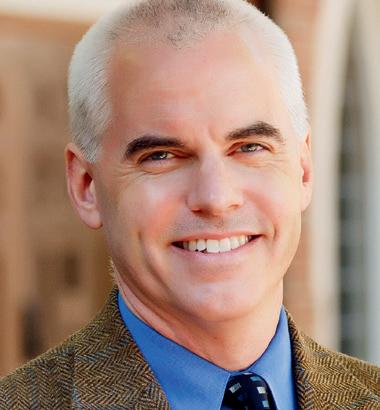
JIM GIBSON presented “All Marks Are Certification Marks” at the Intellectual Property Scholars Conference at University of California, Berkeley, and was quoted in multiple news articles regarding the U.S. ban on TikTok.
CORINNA BARRETT LAIN filed an amicus curiae brief in State of Arizona v. Aaron Brian Gunches, a case in which a death row prisoner has repeatedly requested his own execution and criticizes the state for not doing so. Lain argues that Arizona’s death penalty procedures are still likely to lead to “torturous deaths” from the use of pentobarbital and the state’s history of issue-ridden executions.“Mr. Gunches’s apparent willingness to be executed does not change these facts,” she wrote.
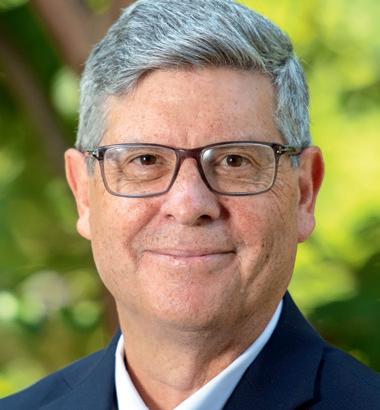
KURT LASH is one of the nation’s 10 most-cited law faculty writing on legal history from the period of 2019-23. He also has an article in press: “The Meaning and Ambiguity of Section Three of the Fourteenth Amendment” will be published in Harvard Journal of Law & Public Policy
KRISTEN OSENGA ’s article “The Injunction Function: Is IP Law Promoting Markets for Innovators & Creators?” was published in Federal Circuit Bar Journal; and “IP, AT, and AAAs: What Intellectual Property Can Teach Antitrust About the War on Amazon Basics” is forthcoming in Belmont Law Review
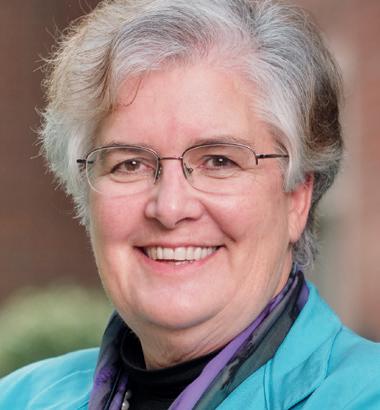
WENDY PERDUE , dean, was named to the Virginia Lawyers Weekly 2025 Circle of Excellence. Only five leaders are selected each year, acknowledging their impact and outstanding leadership in Virginia’s legal community.
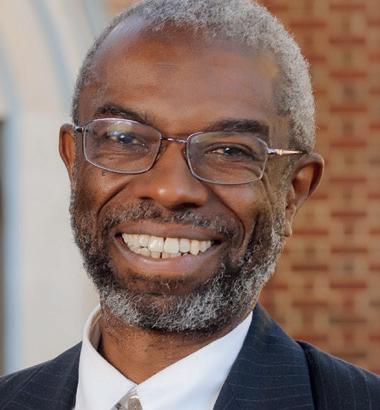
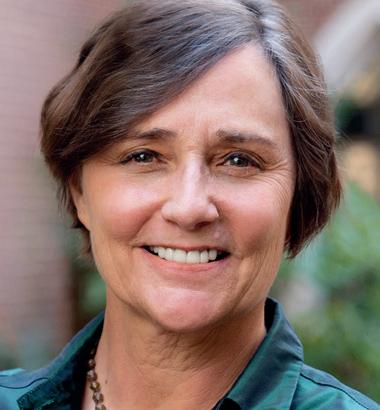
JONATHAN STUBBS published a new book: No Clue: White American Affirmative Action Exists and Demands a Moral Revival Now! with Carolina Academic Press.
In a banner year, the Institute for Actual Innocence Clinic, led by MARY KELLY TATE , secured four victories for clients in 2024. James Roane and Amber Gauch received presidential commutations from President Joe Biden. The Virginia Court of Appeals exonerated Marvin Grimm and commuted Leshay Rhoton’s 20-year sentence to 12.5 years.
BY MATTHEW DEWALD
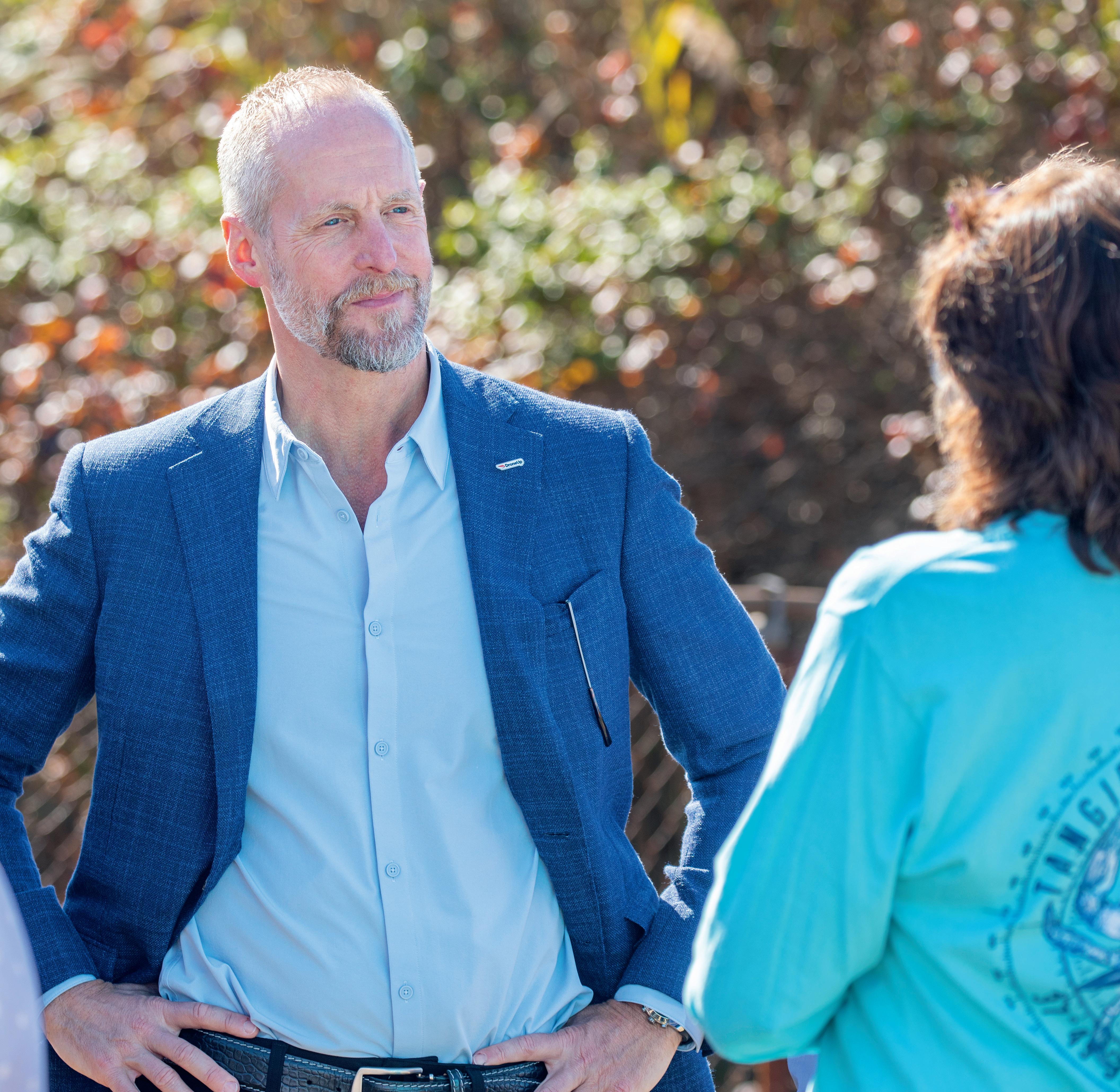
ANTHONY VITTONE, R’90 AND L’93, LEVELED UP HIS DUAL TRAINING IN LAW AND BUSINESS BY COMBINING THEIR STRENGTHS. TODAY, HE’S FORGING THE FUTURE OF COMMERCIAL DRONE OPERATIONS.

“I’m a recovering lawyer,”
Anthony Vittone, R’90 and L’93, sometimes quips when he introduces himself.
The phrase speaks to the unconventional trajectory of his career—from law school graduate to executive vice president and chief operating officer of DroneUp, one of the nation’s leading drone delivery startups. But to view Vittone’s story as a simple transition from law to business would be to miss the nuanced interplay of legal expertise, entrepreneurial spirit, and technological innovation that has defined his professional journey since leaving Richmond Law.
Vittone has always had entrepreneurial and creative streaks alongside his legal interests. In his days as an undergraduate at Richmond, he made and sold pen-andink drawings of campus buildings in the campus bookstore and at Arts Around the Lake. “I did anything I could to make money,” says Vittone, who met his wife, Katherine Salley Vittone, B’91, on campus. “[Her] engagement ring—I paid for that out of selling artwork on campus.”
He has combined these instincts with his legal training to build a career outside of traditional law practice but still on the foundation of his training at Richmond Law and experience as a lawyer.
After earning his law degree in 1993, Vittone began his legal career in a conventional manner, joining the law firm of McGuireWoods as an associate. He gravitated toward the firm’s burgeoning intellectual property practice, drawn to the creative aspects of the work. “I’ve always had this sort of creative bent,” Vittone says. “The intellectual property department gave me that outlet of working with people who are creating things, whether it be inventions or artistic works.” After a few years there, he moved to Mezzullo & McCandlish, where he focused on corporate law.
Even at this early stage of his career, he was starting to bridge the gap between legal considerations and business objectives.
“When you’re in a law firm, you’re really just looking at a transaction based on [the legal] issues,” Vittone says. “It’s not your job to think about whether it’s a good business transaction for the company, but I always had thoughts about that.”
Vittone’s musings became his focus and responsibility with his next professional step. In 1999, he took a position with a privately owned gaming company called Decipher, which specializes in licensed card and board games. As both general counsel and vice president for business development, Vittone found himself negotiating deals with entertainment giants like Lucasfilm and Paramount Pictures. “It was fascinating,” he says. “I grew up in the time when Star Wars [first] came out, and here I am negotiating with people that work with Lucasfilm.”
“I’VE ALWAYS HAD THIS SORT OF creative bent.
THE INTELLECTUAL PROPERTY DEPARTMENT GAVE ME THAT OUTLET.” “
The Decipher role marked a pivotal moment in his career evolution. “This is where I first began getting involved on the business side as well as being a lawyer,” he says. “I could have conversations about the economics of the transaction and the business justification. What I loved was working out ways for both companies to say, ‘You give me this, I can give you this. It makes a better deal for you, makes it a better deal for us.’”
This ability to understand both business implications and legal considerations has been key to his subsequent professional endeavors. At DroneUp, it informs every aspect of his work, from regulatory negotiations with the FAA to strategic partnerships with retail giants. “My first instinct when I come to a business deal or business discussion is to look at it from the business side,” he says. “Then I’ll layer on the legal afterward.”
The path of Vittone’s journey from traditional legal practice to a gaming company to drone technology was anything but linear. It required a willingness to learn new industries and technologies and embrace the uncertainty of startup culture. This shift in mindset developed significantly during his tenure at Swimways Corp., which hired him away from Decipher in 2004. He would spend the next 14 years there in an ever-expanding role.
Vittone was first hired to set up the company’s internal legal department. Once he did that, his responsibilities grew consistently. “Every year to year and a half, the CEO would ask me to take on another department,” he says. “I really started to think of things in a business context.”
At Swimways, Vittone’s purview expanded to include global operations, product development, and strategic ini-
tiatives. He opened offices in Hong Kong and Guangzhou, China, establishing manufacturing and sourcing operations. He created an inventor submission program to fuel product innovation and established a product integrity department. “I learned a lot,” Vittone says of his time at Swimways. “It became a core business experience for me in the sense that it was something completely outside of the legal realm.”
Up to this point in his career, his business acumen had been decidedly DIY—keeping his eyes and ears open, finding mentors and advisers, and learning from mistakes and near-misses. The CEO at Swimways, recognizing Vittone’s growing potential, encouraged him to pursue an MBA on the company’s dime. Vittone enrolled in the MBA program at the College of William & Mary, attending classes every other weekend while working full time, an experience he said significantly strengthened his business skills and decision-making. He finished the program in 2011.
“There’s something about going back to school when you’re older,” Vittone says. “Every class was just fascinating. It really rounded out my self-taught business learning and gave it a more formal structure.”
Another professional turning point for Vittone came when Swimways was acquired by a larger public company in 2018. The bureaucracy of the new environment clashed with his entrepreneurial instincts. “I’m used to making five different decisions before lunch,” he says. “Publicly traded companies are like, ‘Submit five different decisions to 10 different committees for them to maybe make a decision in two months.’”
After helping through the transitional period, he started looking for new options. Vittone joined DroneUp as its first full-time employee in 2018, eager to return to a more nim-
ble environment. The fledgling drone company offered the opportunity to leverage both his legal expertise and his business acumen in an emerging industry.
“Not only is it a startup, but it’s a startup in a startup industry,” Vittone says. “If you create a T-shirt company, you might be a startup, but you don’t have to explain to anyone what a T-shirt is. We have to explain to people what drones are and all the different ways that they can be used because we’ve only just scratched the surface of what this technology can do.”
Perhaps nowhere is the value of Vittone’s legal background more evident than in DroneUp’s efforts to navigate and shape the complex regulatory environment emerging with commercial drone operations. As a new technology, drones present unique challenges to existing aviation regulations. Vittone has been at the forefront of efforts to educate regulators and lawmakers about the potential of drone technology while ensur ing safety and privacy con cerns are addressed.
“A lot of our regulatory efforts have been giving the FAA the assurance that we can do this and do it in a safe way,” Vittone says. He played a crucial role in DroneUp’s efforts to obtain Part 135 Air Carrier certification from the FAA. DroneUp is the sixth carrier in the nation to receive the certification. “It’s a big accomplishment for us,” Vittone says. “It basically certifies us as an air carrier to carry goods for other people and to carry them beyond line of sight.”
exposed to a lot of different issues and things that lots of people don’t.”
As chief operating officer at DroneUp, Vittone is not just navigating the current landscape of drone technology and its regulatory environment—he’s actively shaping where it is headed. “Drones are going to get to the point where they’re going to be incorporated into everybody’s business,” he predicts. “It’s just a question of how and when that comes.”
Vittone envisions a world where drone delivery is as commonplace as traditional shipping methods. He sees potential applications far beyond retail delivery, including emergency medical supply transport, infrastructure inspection, and environmental monitoring. However, he’s also mindful of the challenges that lie ahead, from public perception issues to regulatory frameworks needing to evolve further.
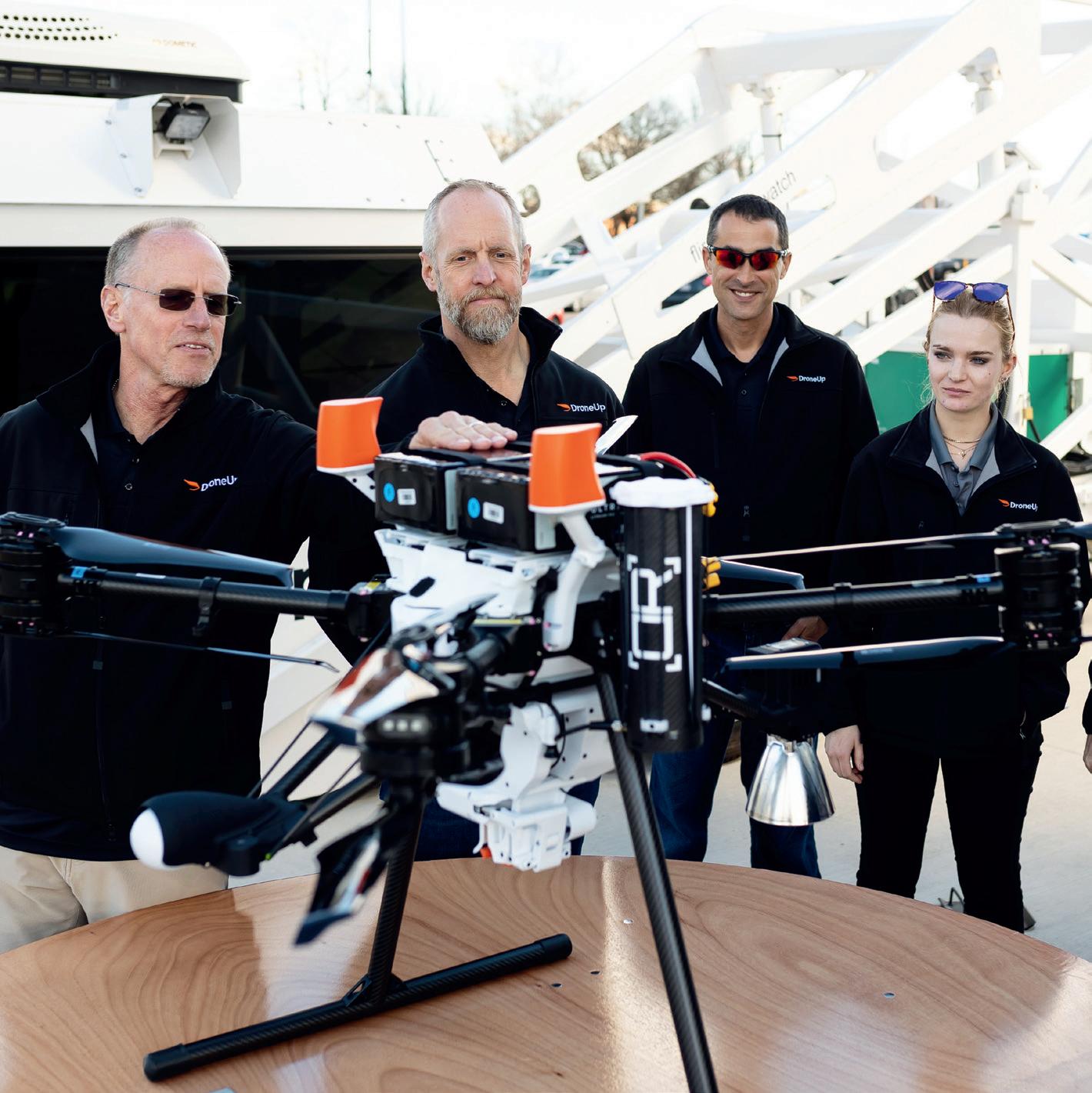
Vittone’s involvement has extended to helping shape federal legislation. He was a key voice from the industry providing input for the 2023 FAA Reauthorization Act. In particular, he spearheaded an industrywide effort to achieve bipartisan support for expanding “beyond visual line of sight,” or BVLOS operations, a regulatory update that is essential for the industry’s future. This demonstrated the unique value his legal background brings into his emerging industry. “I think that a law degree gives somebody a lot,” Vittone says. “You cannot operate a business in the United States without lawyers. It becomes a good basis for running a business, and you get
Vittone’s trajectory speaks to the breadth of opportunities a law degree can open up. When he was in law school and then practicing early in his career, Vittone didn’t hear much about options beyond traditional law firms or public interest work. “There wasn’t enough attention put on the fact that you can go to law school, but you don’t necessarily have to go be in a law firm,” he says. “You can go into a company and be in-house, or you can also go into a company and not even be in the legal department, but just use the law degree as a jumping-off point into a larger career somewhere else. Your law degree can take you to places you might not expect. Be open to opportunities that might not fit the traditional mold of a legal career.”
Embracing entrepreneurial thinking and seeking out diverse experiences have been key to his professional path, he says. “Every role I’ve had has taught me something valuable. Don’t be afraid to take on new challenges or step outside your comfort zone.” ■
Richmond Law faculty
create newsworthy, real-world impact with their scholarship
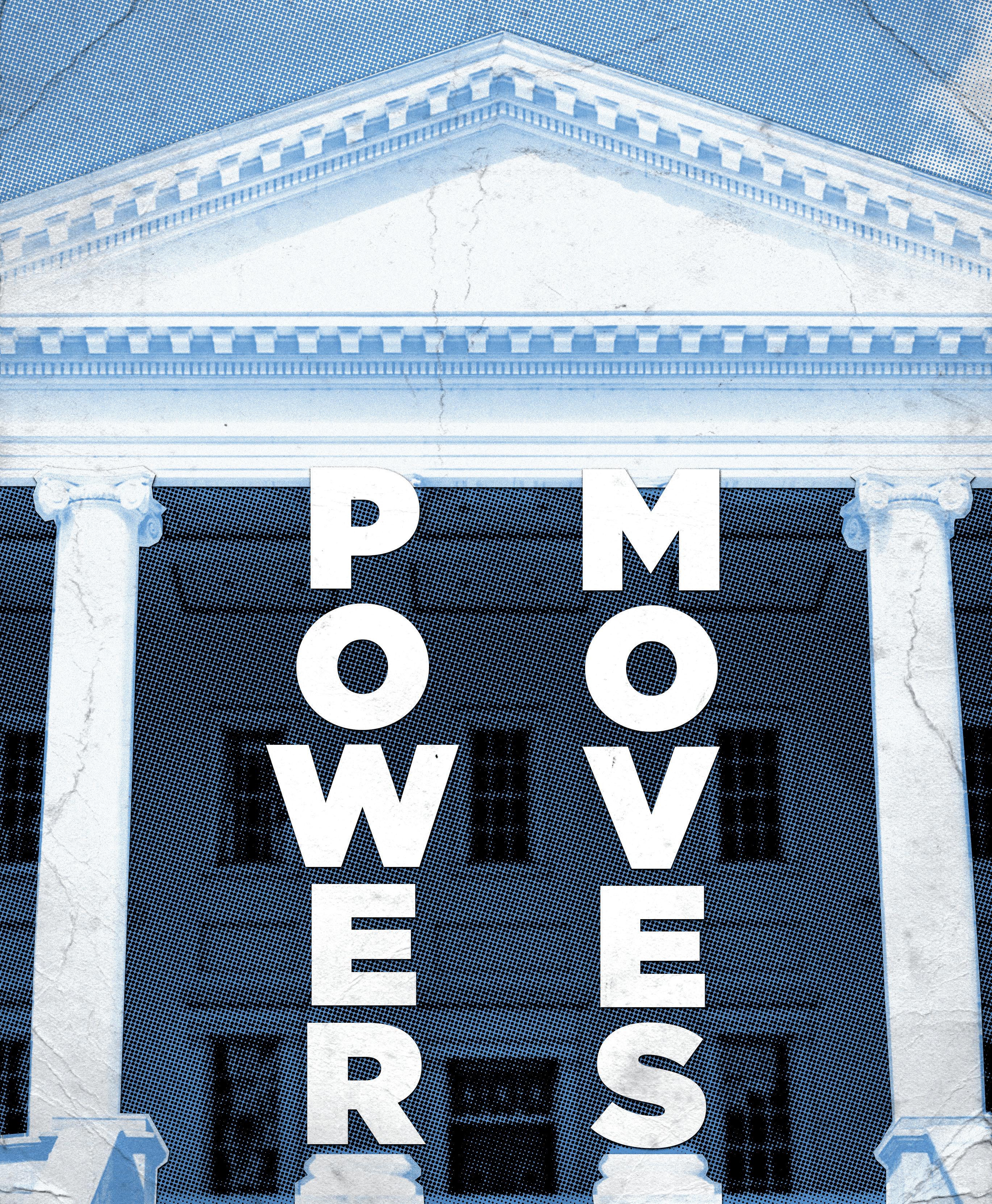

When questions about Donald Trump’s eligibility for the presidency under the 14th Amendment emerged as a major constitutional issue in 2023, professor KURT LASH found himself reluctantly thrust into the national spotlight. As the E. Claiborne Robins Distinguished Professor of Law, Lash had spent decades studying the history and original meaning of the 14th Amendment but had never closely examined Section 3, the provision at the center of the controversy.
“I deeply desired to stay out of it because it was so politically divisive,” says Lash. “But my role here at the law school obligates me to play a part when asked and use the resources the school has given me to research knowledge about the Constitution.”
That sense of duty led Lash to moderate a panel on Section 3 at UCLA in September 2023. To prepare, he dove into his extensive collection of historical documents about the 14th Amendment’s framing and ratification. What he found surprised him: There was no clear historical evidence that the amendment’s authors intended Section 3 to apply to the presidency.
The provision explicitly names senators, representatives, and presidential electors as offices subject to disqualification but notably omits any mention of the president. According to Lash, this wasn’t an oversight. The amendment’s authors were primarily concerned about preventing former Confederates from regaining power at the state level, where they could influence the selection of federal officials. They weren’t worried about the presidency because they didn’t believe the American public would elect someone disloyal to the Union.
Lash’s historical analysis gained traction after he published an op-ed in The New York Times and a journal article expanding on his findings. Though he declined to participate directly in litigation, he submitted an amicus brief to the Supreme Court summarizing his research. In February 2024, the Court’s ruling aligned with Lash’s interpretation, finding that states could not unilaterally disqualify presidential candidates under Section 3.
For Lash, the experience illustrated the vital role academic scholarship can play in contemporary legal debates. “It’s been a privilege to have been cited by the Supreme Court in the past,” he says. “But for those of us who write amicus briefs, we recognize that we may never be cited at all. We’re hoping to bring helpful information to the court and make it more likely that they’ll come up with a reasonable opinion consistent with the text of the Constitution.”
The purpose of rigorous historical research, Lash says, is to build a foundation of knowledge that can inform public policy debates and constitutional interpretation for generations to come. “That academic work, if it’s done well, becomes a resource available to later generations of scholars, lawyers, and citizens.”
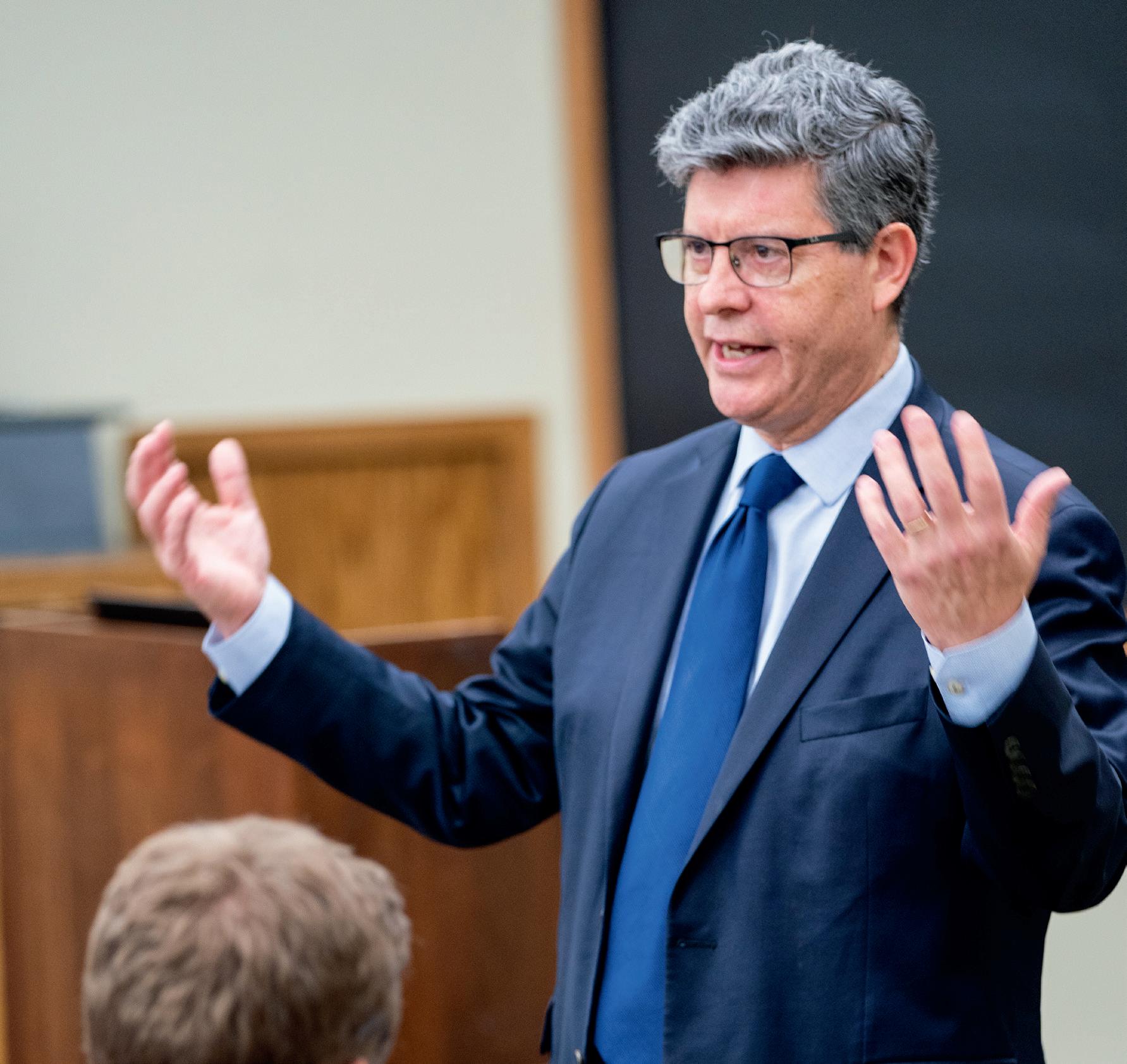
“It’s been a privilege to have been cited by the Supreme Court in the past, but for those of us who write amicus briefs, we recognize that we may never be cited at all.”
—KURT LASH
KRISTEN JAKOBSEN OSENGA—law professor and associate dean for academic affairs—testified before the Senate Judiciary Subcommittee on Intellectual Property in December. There, she delivered a message that was both simple and powerful: The proposed RESTORE Act is “perfect.”
Osenga brought her expertise in patent law to Capitol Hill to advocate for legislation that would strengthen patent holders’ rights against infringement. The bill would restore patent owners’ ability to obtain injunctions against those who infringe on their intellectual property—a right that was significantly curtailed by a 2006 Supreme Court decision.
“For the last 20 years, it has become harder and harder for patent owners to get an injunction, even when somebody is trespassing on their idea,” Osenga said. She likens patent infringers to squatters whom property owners can-
not remove, despite the fact that they are occupying property without permission.
This venture into congressional testimony marks a new chapter in Osenga’s career. Though she has long been a voice for strong patent protections through academic writing and op-eds, direct advocacy wasn’t initially part of her plan. That changed in 2024 when she took on the role of chief policy counsel for a 501(c)(4) advocacy group, discovering a passion for public engagement on patent policy issues.
“I never thought I wanted to be an actual advocate,” Osenga said. “But now, I’m like, advocating is my jam.”
Her enthusiasm for patent law stems from a deep conviction about innovation’s role in society. From everyday conveniences like navigation apps to crucial medical advances, Osenga sees patent protection as vital to fostering the innovation that drives economic growth and improves lives.
“I never thought I wanted to be an actual advocate, but now, I’m like, advocating is my jam.”
—KRISTEN JAKOBSEN OSENGA
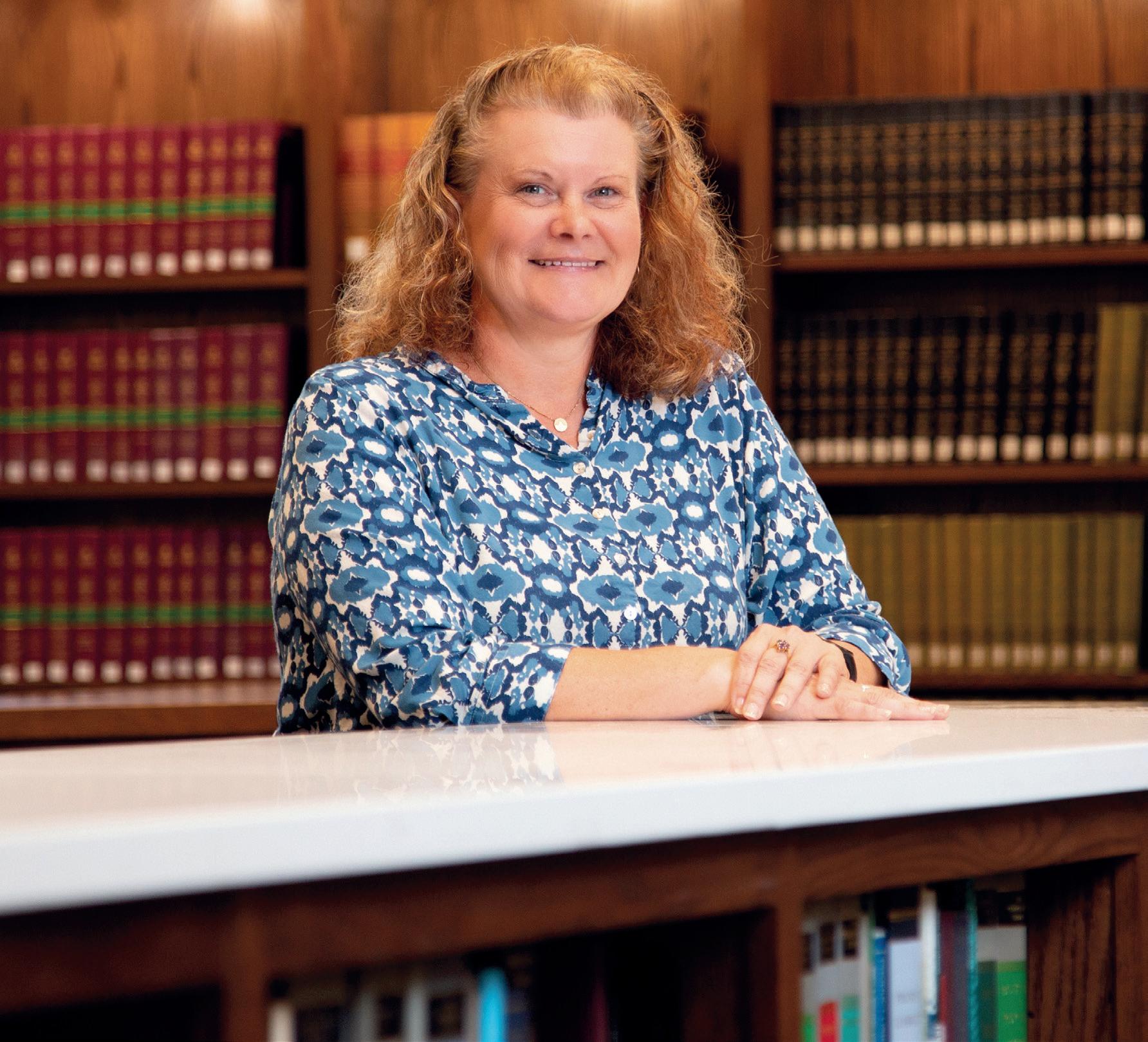
“Innovation is everywhere, touches every aspect of our life,” she said. “How do we get innovation? We encourage people to innovate, and one way we do that is by granting patents.”
The December hearing, which included testimony from inventors and industry representatives, laid the groundwork for the bill’s potential reintroduction in the new congressional session. Osenga remains optimistic about its prospects, noting that patent law typically transcends partisan divisions.
“Intellectual property is bipartisan and less ideological,” she said. “Whether you like patents or hate patents, it transcends ideology.”
For Osenga, who began her career as an engineer before finding her way to patent law and academia, this expanded role in advocacy represents an opportunity to make direct impact beyond the classroom and academic publications. It’s work she plans to continue, supported by Richmond Law’s culture of valuing real-world engagement alongside traditional scholarship.
“Instead of just writing and shouting into the ether where only other law professors read it,” she said, “I’m actually talking to Congress—like, with my mouth. That’s a huge impact.”
In 2018, Tesla’s board approved a $55 billion compensation package for co-founder and CEO Elon Musk, but few thought he would meet the ambitious growth targets required to earn it. Yet he did, turning Tesla into a trillion-dollar company. However, questions remained about the approval process, leading to a shareholder lawsuit that would eventually invalidate the package—and spark a broader debate about attorney compensation in corporate litigation.
Enter JESSICA ERICKSON , the Nancy Litchfield Hicks Professor of Law. For over a decade, Erickson and her co-authors have been studying the complex dynamics of shareholder litigation and attorney compensation. Their work recently gained prominence when it was cited by the U.S. Chamber of Commerce in an amicus brief filed in the 2024 Tesla case, where the plaintiffs’ attorneys requested billions in fees after successfully challenging Musk’s pay package. The Chamber’s inclusion of Erickson’s research highlights its growing influence in the ongoing debate over attorney compensation in corporate litigation.
“These cases are a crucial step in holding corporate boards accountable,” said Erickson, who has taught corporate law at Richmond since 2007. “But there’s a delicate balance. We need to ensure attorneys are paid enough to incentivize them to bring good cases, but no more than that.”
This balance is particularly important because the money comes from shareholders, often through retirement funds and institutional investors. “Whether you know it or not, if you have retirement savings, you’re likely invested in these companies,” Erickson notes. “When companies pay out excessive legal fees, it affects everyone’s bottom line.”
Erickson’s latest research will analyze whether the Delaware Court of Chancery, America’s premier business court, typically awards higher attorney fees than federal courts in similar cases. While Delaware judges maintain their cases are different, Erickson and her team are now gathering data to test this claim empirically. With the business community taking notice—as evidenced by the Chamber of Commerce’s citation of her work—Erickson’s research could help shape how courts approach attorney fee awards in future cases.
In the Tesla case, while attorneys requested billions in fees, the court awarded approximately $300 million—still a substantial sum that raises questions about appropriate compensation in major corporate litigation. Meanwhile, Tesla has voted to leave Delaware for Texas, highlighting the broader implications of these decisions for corporate governance.
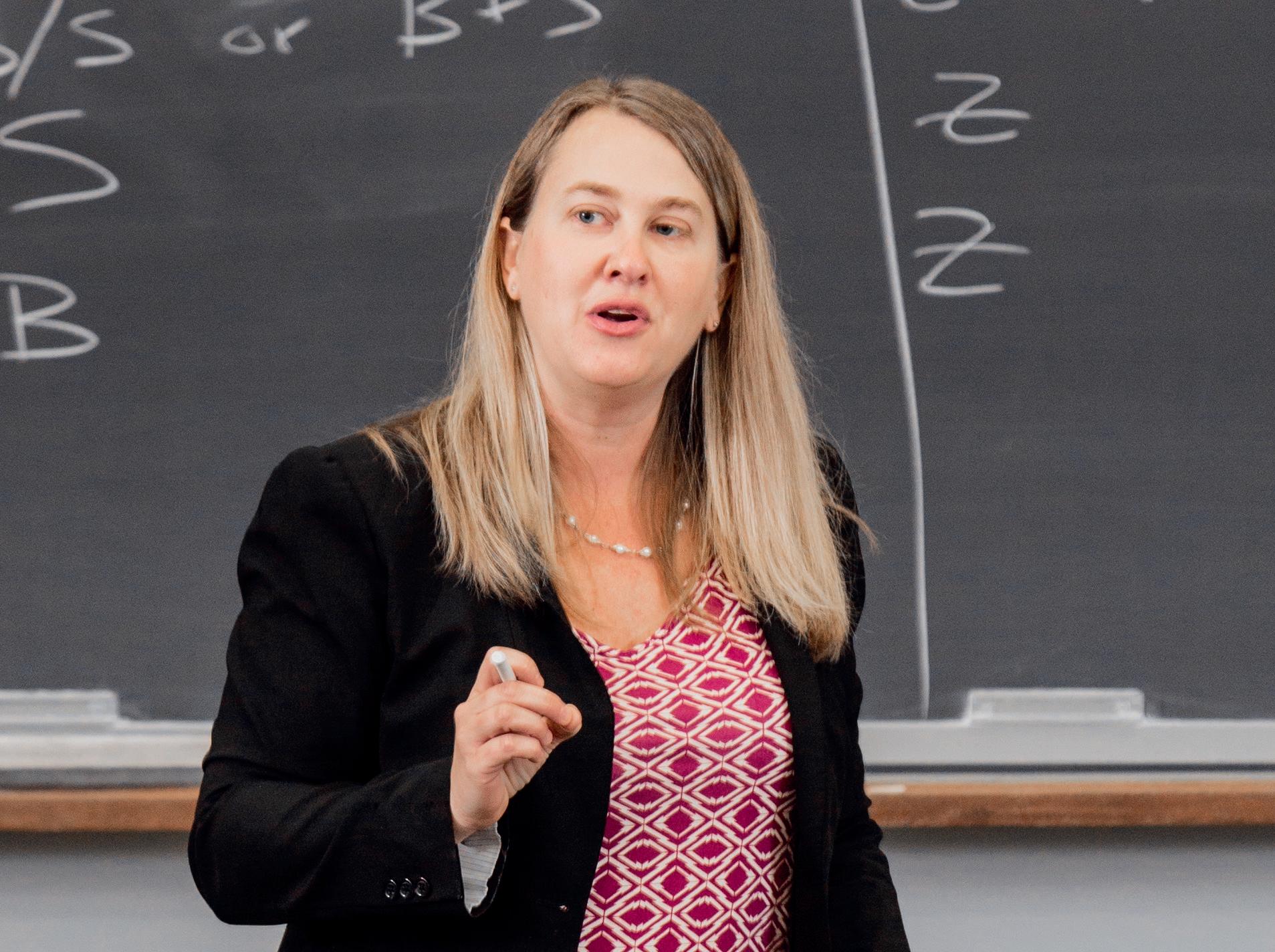
“ There’s a delicate balance. We need to ensure attorneys are paid enough to incentivize them to bring good cases, but no more than that.”
—JESSICA ERICKSON
For Erickson, the work is about litigation design and using data to drive better outcomes for shareholders. “It’s easy to say what we think should happen,” she said, “but harder to determine what’s actually happening and predict the impact of rule changes on the ground.”
As these issues continue to play out in courtrooms across the country, Erickson’s empirical approach offers a valuable framework for evaluating attorney compensation in corporate litigation—one that could help shape the future of shareholder rights and corporate accountability.
Professor ERIN COLLINS wrote a provocative law review article titled “Abolishing the Evidence-Based Paradigm,” challenging mainstream reform efforts’ reliance on quantitative data. Her arguments rapidly drew interest, and she was soon after invited to testify before the U.S. Sentencing Commission to address proposed amendments to federal sentencing guidelines for youthful offenders.
A specific provision in the proposed guidelines would have required judges to consider research showing higher re-arrest rates among younger individuals when deciding sentences. “They’re using re-arrest rates as a stand-in for future behavior,” Collins said. “But arrest rates don’t tell us much about what a particular individual is going to do.”
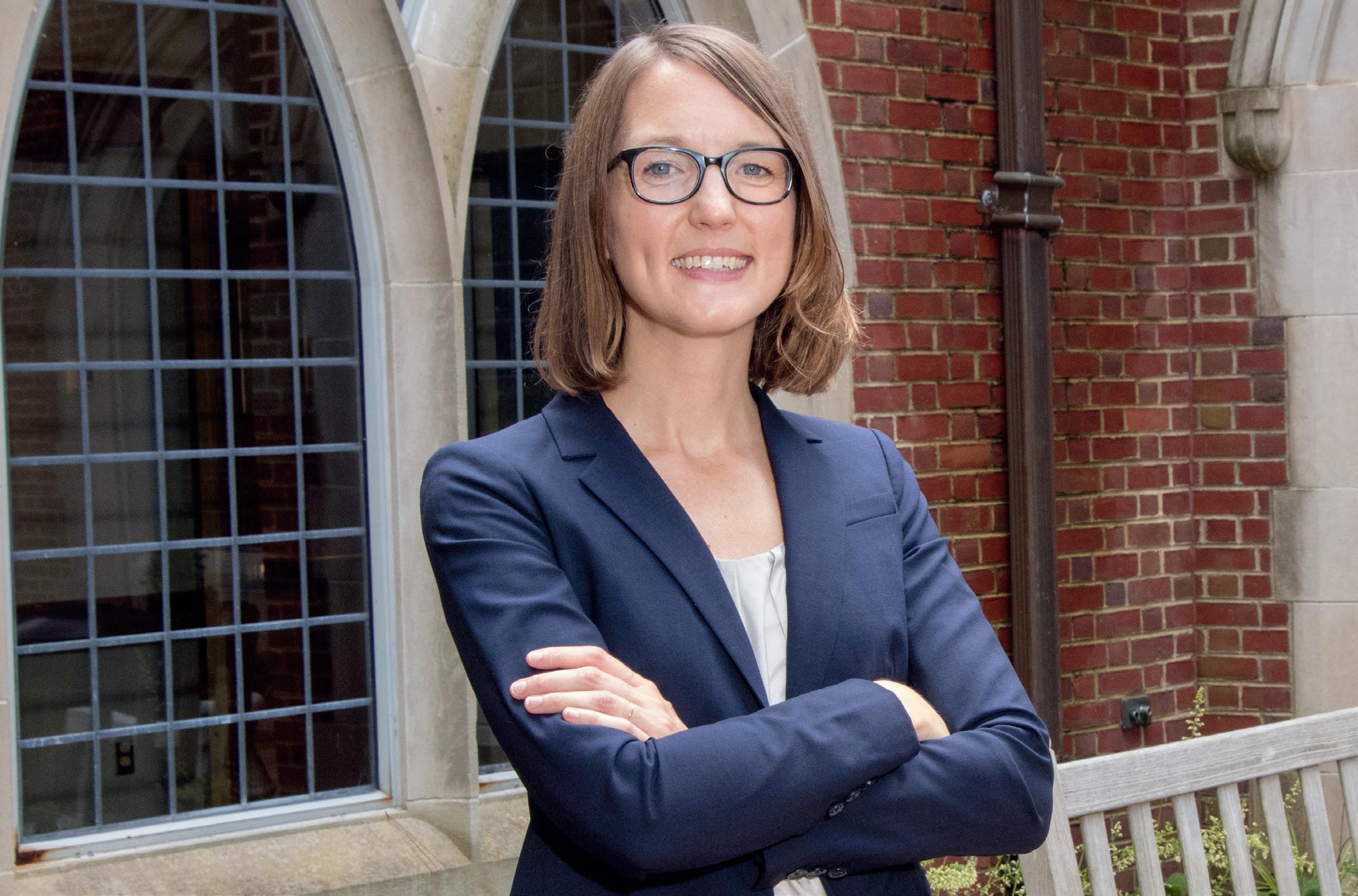
“We need to break with the notion that crime rates are synonymous with public safety. That’s a very limited and limiting view of safety.”
—ERIN COLLINS
Collins, who teaches evidence law and criminal procedure, testified to highlight several critical problems with using arrest data to inform sentencing decisions. She pointed out that an arrest doesn’t necessarily indicate criminal behavior; it only shows that the police suspected someone of a crime and chose to take action. Policing, she went on to explain, isn’t deployed equally across all communities, which leads to racial disparities in arrest rates.
Collins also argued that using group-based statistics to make predictions about individuals is fundamentally flawed. “Data doesn’t just exist in the world,” she said. “People create data. It’s gathered, analyzed, and put to work by humans.” This understanding drives her call for “data skepticism,” a more critical approach to how we define and measure concepts like public safety and successful reform.
The U.S. Sentencing Commission ultimately decided not to adopt the provision Collins critiqued, marking a significant victory for her perspective. But her broader goal is to encourage policymakers to think beyond traditional metrics like recidivism rates when evaluating criminal justice reforms.
“We need to break with the notion that crime rates are synonymous with public safety,” Collins said. “That’s a very limited and limiting view of safety.” Collins advocates for a more comprehensive vision that considers the experiences of directly impacted communities and recognizes that safety can mean different things to different groups— from having meaningful educational and employment opportunities to not fearing law enforcement interactions.
Collins sees encouraging signs in the commission’s current direction under chair Judge Carlton Reeves, who has been expanding the voices heard in policy discussions by inviting formerly incarcerated people to speak at commission hearings. “It’s wonderful to see folks who are open to new ideas and willing to run the Sentencing Commission differently,” Collins said.
For Collins, a former public defender, the experience demonstrated the realworld impact academic scholarship can have. “It’s easy to think my scholarship won’t have an impact beyond a small circle of law professors,” she said. “Seeing it reach people with the power to set law and policy for people whose real lives are at stake—it was truly an honor.”
A team of advocates including professor CHIARA GIORGETTI stood before the International Court of Justice in December. There, they represented more than just the African Union—they spoke for climate justice on behalf of a continent bearing the brunt of climate change while contributing minimal emissions to the crisis.
Giorgetti, who has taught international law at Richmond Law for 12 years, was part of a legal team presenting evidence in a landmark advisory opinion case on climate change before the ICJ, the United Nations’ principal judicial body. The case has drawn unprecedented participation, with 94 countries and organizations providing input.
“Africa’s experience is very unjust,” Giorgetti said. “The African continent produces only 4% of global greenhouse gas emissions, yet they are suffering the most severe consequences of climate change.” These impacts include rising sea levels threatening coastal communities, widespread desertification damaging agricultural production, and extreme weather events that displace populations.
The team’s arguments centered on three key points: that the full body of international law applies to climate change issues (not just climate-specific agreements); that there is clear causality between greenhouse gas emissions and impacts in Africa; and that emitter nations should provide compensation for damages.
Their evidence included expert scientific testimony documenting historical emission patterns and changing weather data. “We can now provide very detailed data showing exactly how much each country has emitted historically,” Giorgetti said.
gations regarding climate change—potentially including responsibilities to communities and individuals, not just other nations.
For Giorgetti, who has dedicated her career to international law and dispute resolution, representing the African Union was particularly meaningful. “I was very lucky when they asked me,” she says. “You can’t have a more interesting client on these issues.”
“We [faculty] are very fortunate to work where we are. We get to do things we couldn’t do otherwise.”
—CHIARA
GIORGETTI
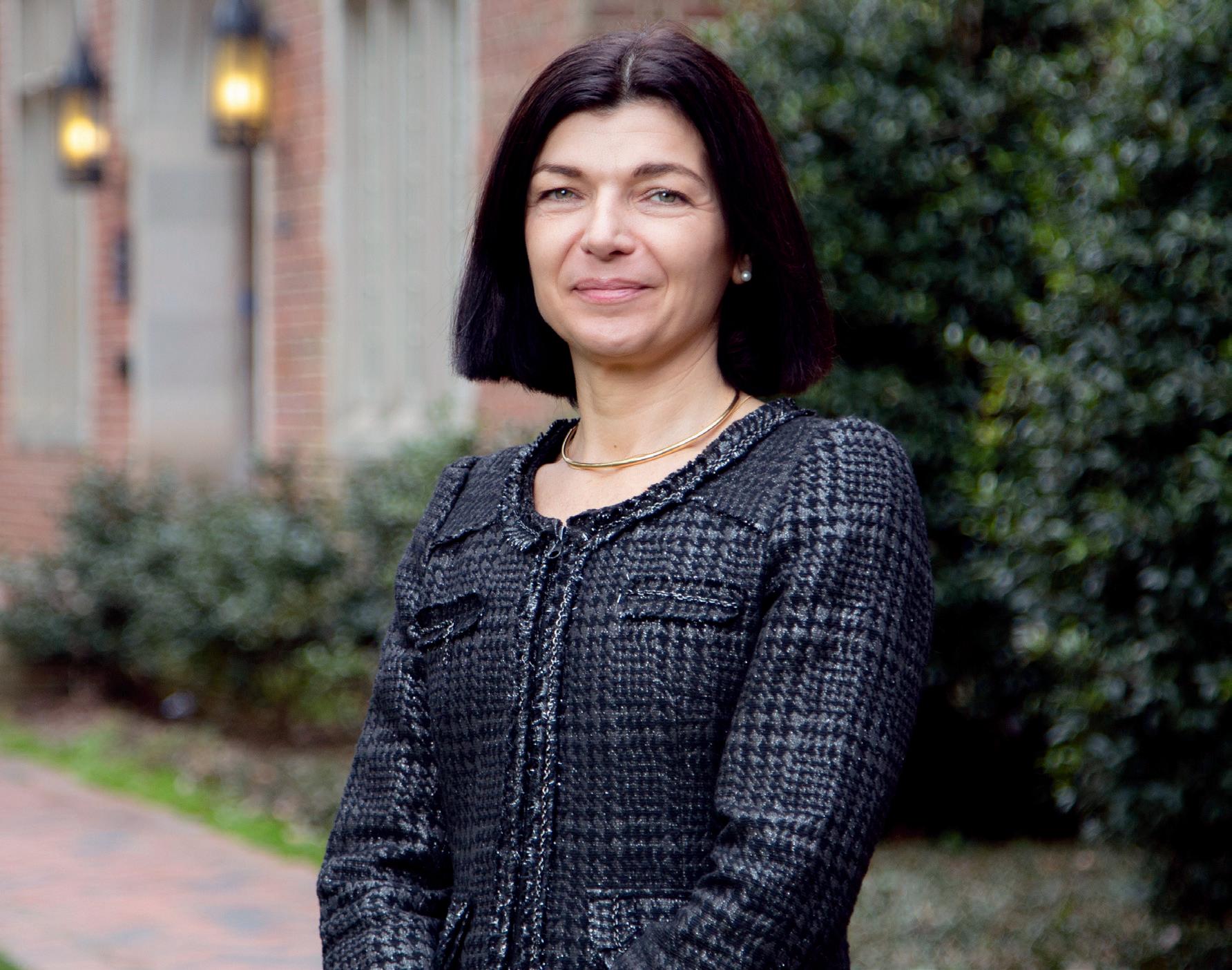
The African Union’s requested remedies include stricter emission limits, technology transfer to support cleaner development, and debt reduction for affected nations. As Giorgetti points out, many African countries face higher borrowing costs due to climate-related risks, creating a “vicious circle” that compounds the challenge.
The ICJ is expected to issue its advisory opinion in mid-2025. While the court cannot directly enforce compensation or specific actions, its opinion will help define applicable international law and countries’ obli-
The opportunity to contribute to such consequential international proceedings while teaching is something Giorgetti deeply values: “We [faculty] are very fortunate to work where we are. We get to do things we couldn’t do otherwise.”
The climate change advisory opinion case could prove to be one of the ICJ’s most significant rulings, helping shape how the international community addresses what Giorgetti calls “historical injustice” in the climate crisis. And for African nations seeking climate justice, the stakes and expectations are high. ■
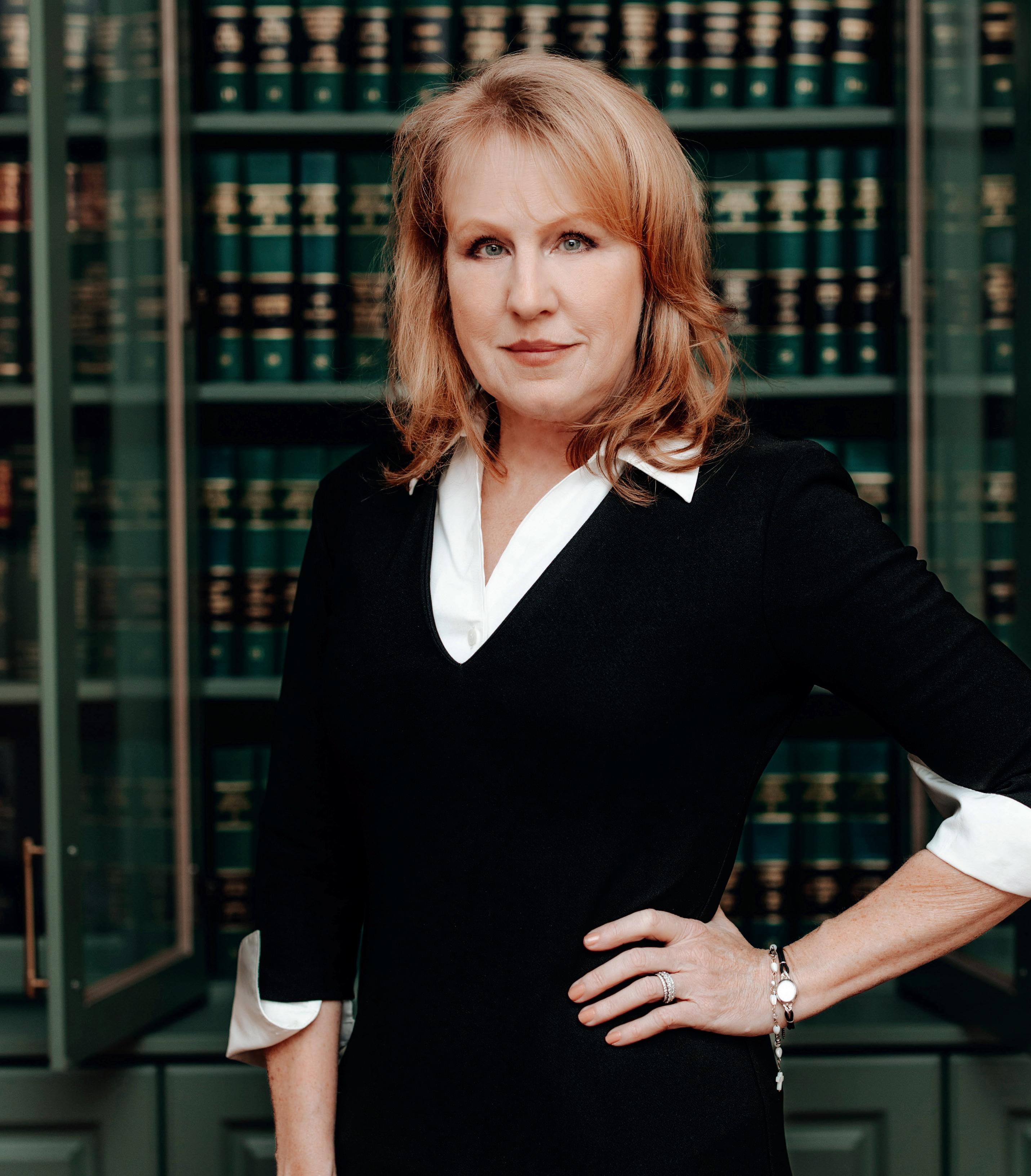


IN SECRETS OF THE KILLING STATE , CORINNA LAIN PULLS BACK THE CURTAIN ON MORE THAN 45 YEARS OF LETHAL INJECTION IN THE U.S.
By Kim
In the waning days of 2024, Pope Francis renewed his support for ending the death penalty across the world, calling it a tangible expression of hope for 2025. Two weeks later, President Joe Biden commuted the death sentences of nearly 40 people facing execution by the federal government—a dramatic reversal for a politician who, three decades prior, championed the death penalty and took credit for its expansion.
This trajectory was seemingly reversed with the second presidency of Donald Trump, who on the day he was inagurated signed an executive order to “restore” the widespread use of the federal death penalty. He instructed the attorney general to pursue capital punishment even in cases restricted by Supreme Court precedent, encouraged state attorneys general to bring state-level capital charges against those whose federal death sentences were just commuted, and promised to ensure states’ access to the drugs necessary for lethal injection executions.
The whiplash between the changing administrations is an encapsulation of an ongoing debate in the U.S. about the place of capital punishment in modern society.
In this charged atmosphere, Richmond law professor Corinna Barrett Lain is publishing her first book, Secrets of the Killing State: The Untold Story of Lethal Injection. In the book, Lain pulls back the curtain on more than 45 years of lethal injection in the U.S., shining a light on where executions go wrong and how state secrecy makes the practice more palatable to an unknowing public.
She received encouraging feedback from other scholars but hit a wall when she reached the final section of the paper—the section on lethal injection. She couldn’t find any research on the point she wanted to make.
“In my mind, this was so obvious. Lethal injection is about disowning death,” she says. “It doesn’t even look like the state is killing. It looks more like what happens when we put down a beloved pet—a death that doesn’t look like death.”
This appearance of a humane death is how states have positioned lethal injection for decades. To challenge this stance, Lain would have to pioneer a new path. “This was the central tension in my argument, and I could not find [the research] anywhere.”
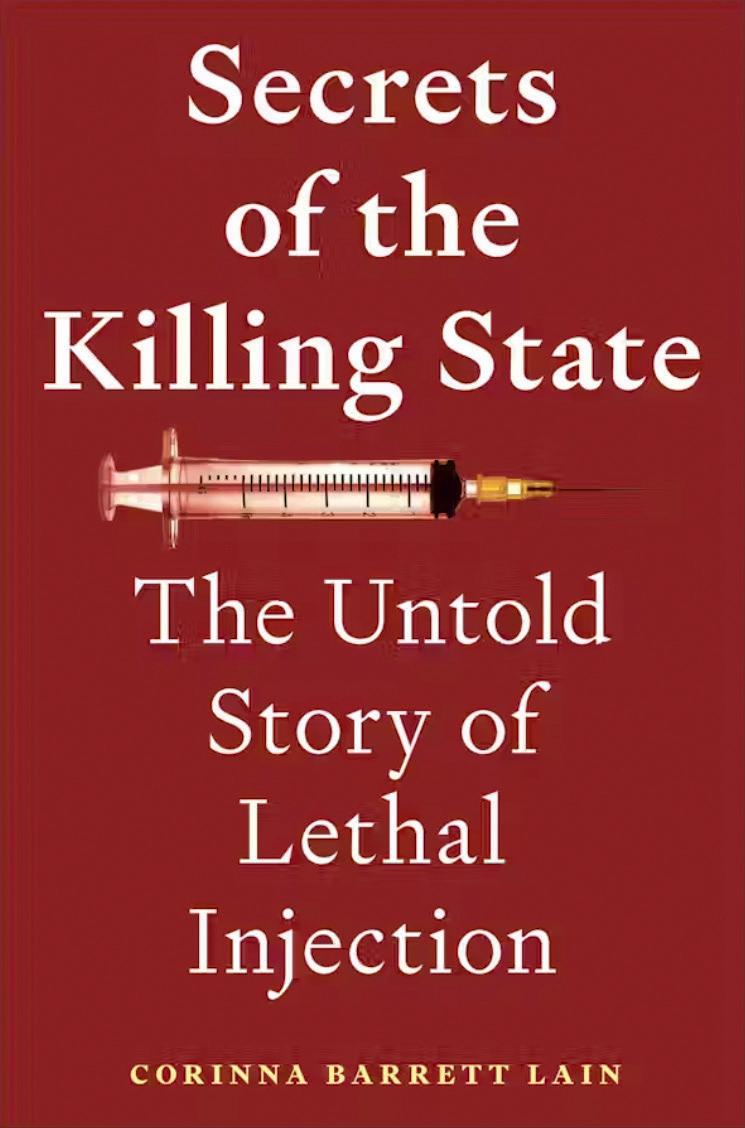
Her book is seven years in the making, the culmination of five years of research and another two years of searching for a publisher and bringing the book to market.
But Lain believes her book is arriving right on time.
‘WHY IS IT SO HARD FOR STATES TO GET LETHAL INJECTION RIGHT?’
Throughout her 20-plus year career in academia, Lain has cycled between twin interests in constitutional history and the death penalty. When she gets stuck in one area, she shifts focus to the other to allow her thoughts room to simmer and develop.
Nearly a decade ago, Lain was writing a constitutional history article that colleagues thought was better suited for book-length treatment. “They were right,” she says, “but I didn’t want to write a book.” She set that piece aside and started on a second article titled “Disowning Death.”
“The point was to show how, from the beginning to the end of the capital punishment pipeline, the law distances us from the moral choices that the death penalty entails,” Lain says.
Lain spoke with a fellow death penalty scholar who confirmed that no one had done the work she wanted to cite. If she needed this to continue her work, he told her, Lain would have to develop the study herself.
“He convinced me that as someone who writes in the ‘court and culture’ space, I was uniquely situated to make the point I wanted to make,” Lain says. “Plus my constitutional history work had given me the research skills to tackle a topic shrouded in secrecy.”
Another question surfaced as Lain continued her studies. “We know how to put down pets,” Lain says. “We know how physician-assisted suicide works. Why is it so hard for states to get lethal injection right?”
After a year of groundbreaking research, Lain had her answer—and it also proved her case that lethal injection was about disowning death, not providing a humane one.
She sat down to start writing. “By the end of part one, I had over 300 footnotes,” she says. “That’s when I realized, uh-oh, it’s a book. That led to some real soul-searching. I had already put down my legal history piece for the very reason that I didn’t want to write a book.
“There’s a whole faith story about why I went forward with [writing this book], and the beautiful journey that this choice began,” Lain says, noting that the testimony is available on her author website.
“It was a personal decision to move forward with the project knowing it would take me out of mainstream publishing for several years,” she says. “But it is also one of the best professional decisions I have ever made.”
The details of lethal injection are widely hidden from the public—and that’s by design. Other methods, like the electric chair and the firing squad, put the brutality of the death penalty at the forefront. Lethal injections conceal
the violence of state killing, offering the illusion that prisoners simply drift off to a painless sleep in the hands of a medical practitioner. This veneer, Lain says, makes the death penalty easier for citizens to support.
“For most Americans, support for the death penalty is support in the abstract. Lethal injection keeps the death penalty abstract,” she writes in the introduction to the book. “It allows the political uses to flourish while hiding the brutality that executions entail.” Lain thinks this is why lethal injection accounts for nearly 98% of all U.S. executions. Out of sight, out of mind.
Lethal injection appears peaceful. But in truth, Lain says, torturous deaths by lethal injection are the rule, not the exception. It’s just that sometimes we see it—when executioners spend hours struggling to insert an IV or a prisoner is injected with the wrong drug—and most times we don’t. Several states have temporarily paused executions to review the practice in detail.
Even when executions go as planned, death by lethal injection is hardly the gentle process it’s made out to be. A 2020 study of more than 200 lethal injection autopsies found that 84% showed evidence that prisoners suffered from acute pulmonary edema as they died—they drowned in their own fluids.
“It’s no exaggeration to say that we are essentially waterboarding these people to death,” Lain says.
By the time she finished the manuscript, Lain had examined litigation files, scientific studies, autopsy reports, academic research across an array of fields, and a treasure trove of articles by investigative journalists. “The journalists are the real heroes in my story,” she says. “The stuff they found was unbelievable. My job was to contextualize their stories in light of everything else I found and put it all together in an accessible way.
“The picture of lethal injection that emerges is astounding,” Lain says. “The reason states can’t get lethal injection right is that lethal injection is nothing like what we think.” The
traditional three-drug protocol every death penalty state used during a 30-year span was devised by someone with no expertise—experiential or academic—in the field.
Later protocols were devised by lawyers using Google search. Lain found states knowingly violating state and federal drug laws. These states made straw purchases through other state agencies, falsified prescriptions, and made drug buys in cash, paying $10,000 or more to questionable suppliers.
“LETHAL
The medical staging used in lethal injection—gurneys, alcohol swabs, and executioners in white coats—are just theater created by people who aren’t doctors. The serene expressions that some executed prisoners show are caused by a relaxant that softens the facial muscles, not an actual sense of serenity.
As a former prosecutor, Lain supported the death penalty conceptually, though she never had a capital case. It wasn’t until she entered academia and studied the death penalty that Lain learned of its many injustices. In an early paper, she studied a case where a defendant’s lawyer fell asleep during the capital trial and an appellate court upheld the verdict. Time and again, she found blatant failures of the law.
“I’ve come to think of the death penalty as involving two questions,” Lain says. “We tend to only ask one: Does the defendant deserve to die? But that’s just half of the equation. The other half is: Does the state deserve to take that life? All too often, the answer to that question is no.
“Public approval of the death penalty is based on a number of assumptions,” Lain says. “People assume that defendants will have good legal counsel, that the death penalty will not be arbitrary, that we will not torture people to death. None of those assumptions turn out to be true. It’s just that people don’t know it.”
At a time when the current administration is doubling down on the death penalty, Lain’s book aims to inform the public about what the state is doing in their name, bringing new attention to longstanding questions about whether states can be trusted to kill at all.
By 2022, after five years of research and writing, Lain had a completed manuscript. Despite the book’s detailed research, Lain knew her work wasn’t purely for academics and scholars.
“Death penalty scholars already know how bad the death penalty is,” Lain says. “They won’t be shocked to
learn that it’s terrible at the end, too. But the average person thinks that lethal injection is careful, competent, humane. It is not.”
Lain found an agent, but trade press publishers repeatedly turned her book down. Six months later, a happenstance meeting changed everything.
“WE DON’T SAY ‘KILL.’ WE USE WORDS LIKE ‘EXECUTION,’ BUT THE AUTOPSY SAYS ‘HOMICIDE.’ WE ARE INTENTIONALLY KILLING. THAT’S WHAT THE DEATH PENALTY IS.”
She was at a conference in Puerto Rico speaking about the role of language in distancing us from the realities of our punishment practices.
“We don’t say ‘kill,’” Lain told her audience. “We use words like ‘execution,’ but the autopsy says ‘homicide.’ We are intentionally killing. That’s what the death penalty is.”
The same is true with other punishment practices, she says. “We ‘imprison’ people. We don’t say we ‘cage’ them, but that’s what we’re doing. The fact that this seems like a blatantly emotional ploy, rather than plain truth, is a testament to just how effective language is at separating us from the reality of the carceral state.”
At the conference, Lain walked by the booth of New York University Press, which she had heard published books aimed at both academics and the general public. She stopped to ask if this was true. The representative confirmed this, adding that she was the person who worked on books for the general public.
Shortly thereafter, NYU Press offered Lain a contract. “NYU Press has been the perfect partner to get
Secrets of the Killing State on shelves this spring,” she says, noting that the press chose an Easter release date six months prior to Pope Francis calling on Catholics to support an end to the death penalty.
‘THE
Today, there are more than 2,000 people on death row in the U.S., and the death penalty is legal in 27 states and at the federal level. Families of victims think that sentencing perpetrators to death will give them closure. Lain thinks that’s an illusion.
“The very thing that family members are told will bring them closure takes anywhere from 15 to 20 to 25 years,” she says. “And during that time, their lives are on hold. These families lose not only their loved ones but also decades of their lives. It’s the exact opposite of closure.”
In those years between sentencing and execution, a perpetrator may not be the same person they were. In the case of Missouri’s Brian Dorsey, for example, more than 70 corrections officers called on the governor to commute Dorsey’s sentence to life without parole. After 17 years on death row, they argued that Dorsey had proven the potential for rehabilitation and redemption. He lived in the prison’s honor dorm and served as the prison barber, even cutting the hair of the prison’s warden and staff.
Taking Dorsey’s life, one officer argued, would be traumatizing for the staff members who had come to care for him. But Lain says the death penalty is difficult to stop once put into action. The governor declined to intervene, and the U.S. Supreme Court rejected his final appeals.
Dorsey was executed by lethal injection in April 2024.
“I felt a deep sorrow, and frankly shame, knowing that this extraordinary exemplar of redemption was about to be killed by the prison staff who had come to know and respect him,” Lain wrote in the book’s epilogue.
“The purpose of lethal injection is not about a humane death,” Lain says. “It’s about a humane-looking death. I once read that ‘the heart stops reluctantly.’ The body wants to keep living. It takes force to end life before the body is ready to let it go. It could be a car accident, it could be a murder, it could be anything—but it takes violence to overcome the body’s natural inclination to live.
“Lethal injection hides the violence so we don’t have to think about what the state is doing. My book aims to change that.” ■
We want to hear from you.
Send your Class Note to classnotes@richmond.edu.
To reach the alumni office, email lawalumni@richmond .edu or call 804-289-8028. Contact us by mail at Law Alumni, University of Richmond School of Law, University of Richmond, VA 23173.
VCU’s School of Business presented the inaugural Walter S. Griggs Jr. Teaching Excellence Award in March, named for WALTER GRIGGS, R’63, L’66, AND G’71 , a professor and administrator at VCU from 1971 to 2016. He passed away in 2019. He is survived by his wife, FRANCES P. GRIGGS, W’63 , and daughter CARA GRIGGS, ’98
The 60th reunion of the Class of 1964 was a great success, with 45 classmates returning to campus during the weekend. They got reacquainted, had lots of laughs, and shared stories of their lives past and present. They missed those who were not able to attend. Law alumni included CHUCK HARTZ, R’64 AND L’69 ; TYKEY MILLER, R’64 AND L’67 ; and ARCHIE YEATTS, R’64 AND L’67
BILL STRICKLAND, B’64 AND L’70 , and wife Lydia “are just doing our thing.” They are active in the Ocean Cruising Club, a UK-based blue-water racing organization. Lots of its members on voyages around the world visit them at their dock on the Corrotoman River. They spent two months in Maine on the boat this past summer.
JOHN KNIGHT, L’73 , and wife NANCY MANNING KNIGHT, W’72 , have been trying to take a “fly away” vacation every year since John retired from his law practice 13 years ago. In late May, they headed off with a tour group to Portugal and Spain and had a wonderful time in spite of a canceled flight and lost luggage that did reappear.
They toured Andalusia in southern Spain, where they were fascinated by the history and culture of the area. One thing Nancy discovered was that she did not learn anything about Spain in her Western civilization class. She had some catching up to do as they traveled! One highlight was visiting the Prado art museum, where she saw many of the paintings from her art history class freshman year. “The remainder of the summer will be relatively calm. Maybe I will cross paths with some of you about town in Richmond,” she added.
A library in Roanoke Rapids, North Carolina, was renamed Chichester Memorial Library in memory of former city attorney GILBERT WILSON CHICHESTER, L’74
An Air Force and Vietnam veteran, Gilbert served 42 years as an attorney in various counties, stepping down from his job in Roanoke Rapids in 2019. He passed away in 2022 at age 75. During the ceremony, Gilbert was remembered as having represented the county of Halifax at the U.S. Supreme Court and for pioneering the court-ordered mediation program that kept many disputes from going to court.
The Westhampton Class of 1974 celebrated its 50th reunion on campus in May. The University looked beautiful; the weather was perfect; and many alumni returned to renew friendships. The class’ induction into the Boatwright Society was paired with being recognized as the class with the highest monetary donation amount and highest reunion participation. Thanks to our reunion committee members, including SARAH HOPKINS FINLEY, W’74 AND
L’82 , who spent 10 months with UR staff planning our meaningful events.
LOIS GRANINGER PEARSON, L’82 , and GARY PEARSON, L’83 , have closed their 40-year law practice in Warrenton, Virginia. Their story began in May 1982 when Gary “with trepidation” approached Lois studying diligently for exams in the Muse Law Library and told her, “It’s one week to graduation, and if you’ll go to lunch with me at the Strawberry Street Cafe, you’ll never have to see me again.” The couple married in 1989, founded Pearson and Pearson in 1994, and “promptly had two daughters: Candice, a graduate of Vermont Law School, and Georgia, employed with Delta Air Lines in Atlanta.” Gary recently concluded a 19-year career in the office of the commissioner of accounts of Fauquier County, Virginia. He also served as president of the Conference of Commissioners of Accounts of Virginia in 2022–23.
PAUL M. BLACK, L’85 , is president-elect of the National Conference of Bankruptcy Judges. He will preside over the conference’s 100th anniversary at its annual gathering in San Diego in 2026. He serves as chief judge of the U.S. Bankruptcy Court for the Western District of Virginia.
Virginia Gov. Glenn Younkin named DAVID WEBB, L’86 , to University of Virginia’s board of visitors. A Virginia Beach resident, David is vice chairman of the capital markets group of CBRE, a real estate services and investment company. After working as an attorney and real estate developer early in his career, David has acted as broker and adviser in the financing of more than $50 billion in commercial real estate transactions.
The Class of 1988 offers its deepest condolences to RONALD HERBERT, L’88 , whose wife, Robin Marshall Herbert, died in September.
KARL FINGERHOOD, L’91 , received the U.S. Attorney General’s Award for Distinguished Service in recognition of his work as the lead attorney in the Safe Drinking Water Act and Clean Water Act cases involving the city of Jackson, Mississippi.
The city’s failing drinking water system collapsed in 2022, resulting in no water flowing to residents’ taps for more than a week and boil notices for weeks afterward.
Karl’s team negotiated with the city and state health departments to identify ways to stabilize the system and begin repairs needed to provide safe water. In three months, the parties agreed to an order that appointed a third-party manager to run the system and provided a detailed list of short-term fixes. Meanwhile, the city’s wastewater system began to decline, and massive discharges of untreated wastewater were flowing into the Pearl River, onto streets, and into residents’ homes. The team worked again to present the court an order to extend the manager’s mandate to the wastewater system.
MICHELLE JONES, L’94 , was the Republican nominee for Clarke County, Virginia, commonwealth’s attorney. At the time of the nomination, she was a private practice attorney with offices in Berryville and Winchester, Virginia. Her experience includes prosecuting traffic and DUI cases in Berryville and other Northern Shenandoah Valley locations. In Clarke County, she has been a community volunteer or board member for several county organizations.
SHANNON TAYLOR, L’95 , is in her fourth term as commonwealth’s attorney for Henrico County, Virginia, and is running in 2025 to be the state’s attorney general.
Members of the 1870 Society gathered for their annual donor reception where they met current students like Jarrid Outlaw, L’25, right.
The 1870 Society honors top donors whose financial support accounts for nearly two-thirds of the school’s annual fund. This helps Richmond Law guarantee a summer public service fellowship to every student and enhance the curriculum with innovative programming and events.
NELSON TEAGUE, L’95 , is chair of the board of trustees for Elk Hill Farm, which offers literacy programs, workforce development, community-based mental and behavioral health services, and residential treatment programs to 900 youth across Central Virginia each year. Nelson has served on the board for 20 years and has worked in renewable energy for 20 years, most recently at East Point Energy.
The Richmond Metropolitan Business League presented BONNIE ATWOOD, L’96 , with one of its 2024 Women Who Lead awards.
JOSEPH W. MYERS, L’96 , was elected a judge of the general district court for the city of Norfolk, Virginia.
STEVE MCCULLOUGH, L’97 , published through LexisNexis a treatise on the Virginia constitution titled Virginia Constitutional Law. Steve is a justice on the Supreme Court of Virginia.
The Hampton, Virginia, City Council appointed COURTNEY SYDNOR, L’00 , as its city attorney. Sydnor previously worked in the Loudoun County, Virginia, government for 14 years, most recently as county attorney for community development.
DAVE DEPIPPO, L’02 , won a case before the U.S. Supreme Court for veterans’ rights under the GI Bill.
REIS ALSBERRY, L’03 , is director of intellectual property and commercialization for Pennington Biomedical Research Center. He previously was a commercialization manager for Oak Ridge National Laboratory and held management positions at Florida State University, Florida A&M University, and Old Dominion University.
ANDREW TANK, L’07 , is now partner with the firm Livesay & Myers in Fairfax, Virginia. Andrew joined the firm in 2019 as a lead senior associate. He quickly established himself among the leading family lawyers in the firm. A fellow partner said his “commitment to his work, to his clients, and to the long-term health of the firm is unmistakable and irreplaceable.”
ALISA FERGUSON, L’08 , is associate general counsel for the Commonwealth Savers college savings programs and program manager for Virginia’s Achieving a Better Life Experience (ABLE) program, which helps people with disabilities to save and achieve financial independence without jeopardizing their eligibility for public health benefits. Alisa previously worked in private practice as a trusts and estate attorney, focusing on estate planning, special needs planning, and estate and trust administration.
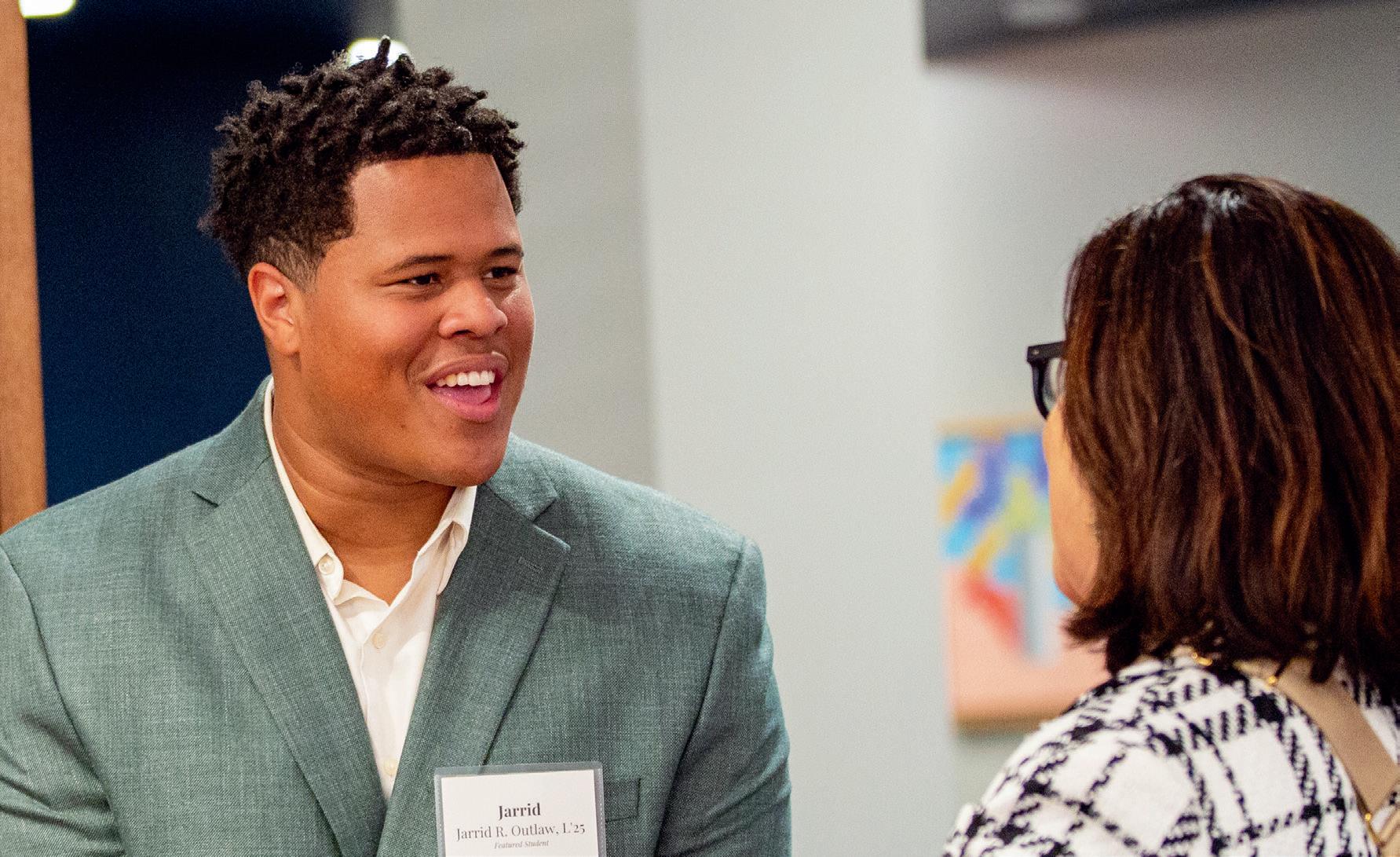
LAUREN M. HILL, L’08 , is a deputy commissioner for the Virginia Workers’ Compensation Commission, serving the Harrisonburg, Virginia, region. She previously completed internships with two circuit courts in Virginia, the Office of the Attorney General, and the Virginia Employment Commission.
KYLE WINGFIELD, L’08 , and MARY MARSHALL WINGFIELD, ’97 , are in Richmond. He is with the Williams Mullen law firm, and Mary is in investments as a supervisory analyst with Wells Fargo.
The American Bankruptcy Institute named BRITTANY BERLAUK FALABELLA, L’10 , to its 40 Under 40 list for 2024. Brittany works at Hirschler’s Richmond office, where she represents multiple players in the bankruptcy process. She also advises companies and stakeholders in out-of-court restructurings and wind-downs. The 40 Under 40 program recognizes professionals who demonstrate remarkable ability, leadership, and achievement in the bankruptcy and insolvency community before the age of 40.
KEVIN ROSE, L’10 , is vice president of risk, safety, and compliance at Lutheran Senior Services, one of the largest nonprofit senior living providers in the United States.
BRIELLE HUNT MAFFETT, ’11 AND L’14 , and ALEX MAFFETT, ’12 , welcomed their second child, a daughter, in December 2023. Lillian “Lillie” Grace Maffett joins big brother Brooks. Brielle is a partner in the law firm Phelan Petty, and Alex is a financial adviser with Miller-Bowles-Horn Group at RBC Wealth Management.
DILLON TAYLOR, L’16 , adjunct professor of law at UR, is chief of staff and senior counsel of the Virginia Department of Emergency Management. He has been an executive liaison responsible for the intergovernmental affairs portfolio for dozens of state and federal disasters and complex incidents. He previously worked with the U.S. Department of Transportation and the National Transportation Safety Board. He also was a legal fellow in the U.S. House of Representatives. Prior to law school, he was
a professional firefighter. He is a graduate of Harvard’s National Preparedness Leadership Initiative, the Federal Emergency Management Agency’s Vanguard Executive Crisis Leadership Fellowship, the Columbia School of International and Public Affairs’ Leading With Impact program, and the Naval Postgraduate School’s Center for Homeland Defense and Security Executive Leaders program, where he received the 2024 Ellen Gordon Award. He is currently in the Rising Leaders program at the Aspen Institute’s Aspen Strategy Group.
CHARLIE ANSLEY, L’17 , is a clean energy innovator fellow with Stowe Electric as part of a partnership with the U.S. Department of Energy’s clean energy innovator program. Fellows receive hands-on experience supporting projects deemed critical to advancing clean energy solutions that decarbonize the power system, electrify transportation and industry, and make the U.S. power system more resilient, equitable, and inclusive. Charlie is hoping to start a new career in public service with a focus on adapting to climate change and promoting a clean energy future. At Stowe, he is helping the utility update its internal policies, focusing on customer enrollment in energy equity programs, net-metering, and Vermont rules and statutes related to renewable energy.
JENNI LYMAN TYNES, L’17 , has joined the Virginia Beach, Virginia, office of Kaufman & Canoles. She is of counsel in the firm’s litigation and family law sections. She interned at the Virginia attorney general’s Division of Child Support Enforcement and with the Honorable Stuart L. Williams Jr. in the juvenile and domestic relations court in Henrico County, Virginia. She participated in the Jeanette Lipman Family Law Clinic, where she provided legal services to families and children in the Richmond community. Prior to joining Kaufman & Canoles, she practiced family law in Northern Virginia for seven years.
PAIGE R. SKINNER, L’24 , joined Christian & Barton in Richmond as an associate. She focuses her legal practice on labor, employment, and litigation matters.
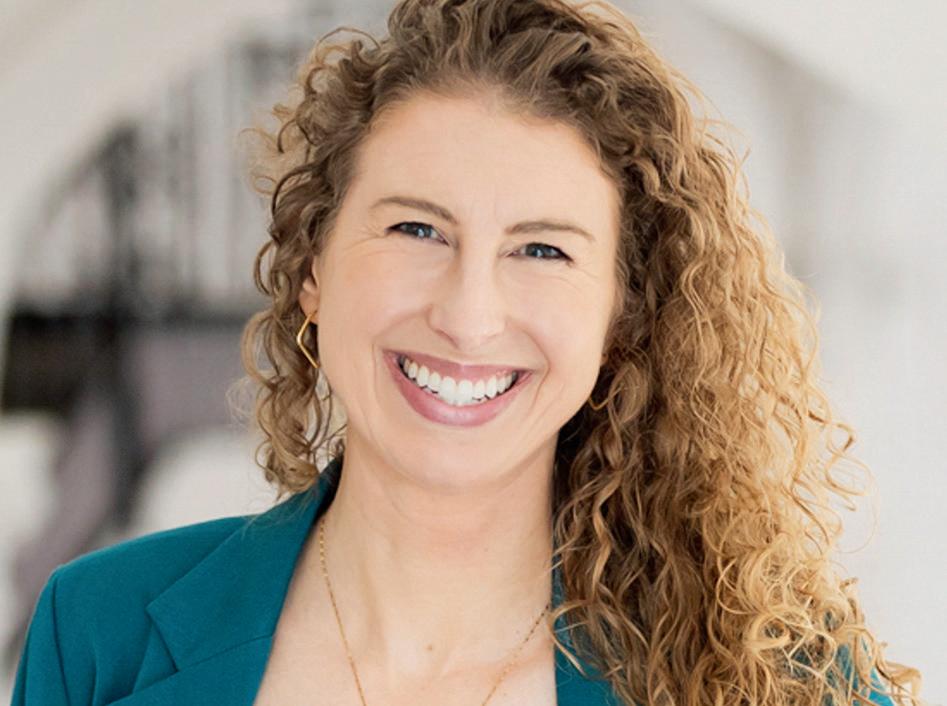
LEAH STIEGLER, L’15, believes the most passionate lawyers are the most successful—and she’s living proof.
The principal at Woods Rogers, recently named to Virginia Lawyers Weekly’s 2025 list of Influential Women in Law, has established herself as a preeminent voice on employment compliance, helping companies navigate personnel matters, administrative investigations, and workplace claims.
“I get to help people across all industries,” she said. “In the morning, I could be at a retail outfit, and in the afternoon, I might head to a shipyard or a manufacturing plant. I love that every day is different and engaging—I’m constantly learning new things.”
Stiegler regularly shares her expertise through writing and public speaking. In addition to having a standing column in Today’s General Counsel magazine and weekly speaking engagements across Virginia, Stiegler co-hosts a video series—What’s the Tea in L&E?—to educate employers about the latest trends and updates in labor and employment law. Topics range from handling harassment allegations to requiring drug and alcohol testing.
“It’s an easy way to share small but helpful bits of information,” she said. “We’ve gotten great feedback from clients that the videos can serve as talking points for their management teams.”
In today’s uncertain political climate, Stiegler is focusing on preparing employers to navigate changing laws and potential divisiveness in the workplace. “We are becoming a more polarized nation, and that obviously impacts what happens in the workplace,” she said. “I’m here to help clients handle these issues on a case-by-case basis.”
Stiegler said she is grateful to Richmond Law for providing valuable networking opportunities and resources to build her knowledge base and shape a well-rounded perspective. “Richmond gave me the tools I needed to find the right answers to any question,” she said. “I learned to get a holistic view of a situation so I can offer clients the best advice and point them in the right direction.”
Kyra Molinaro
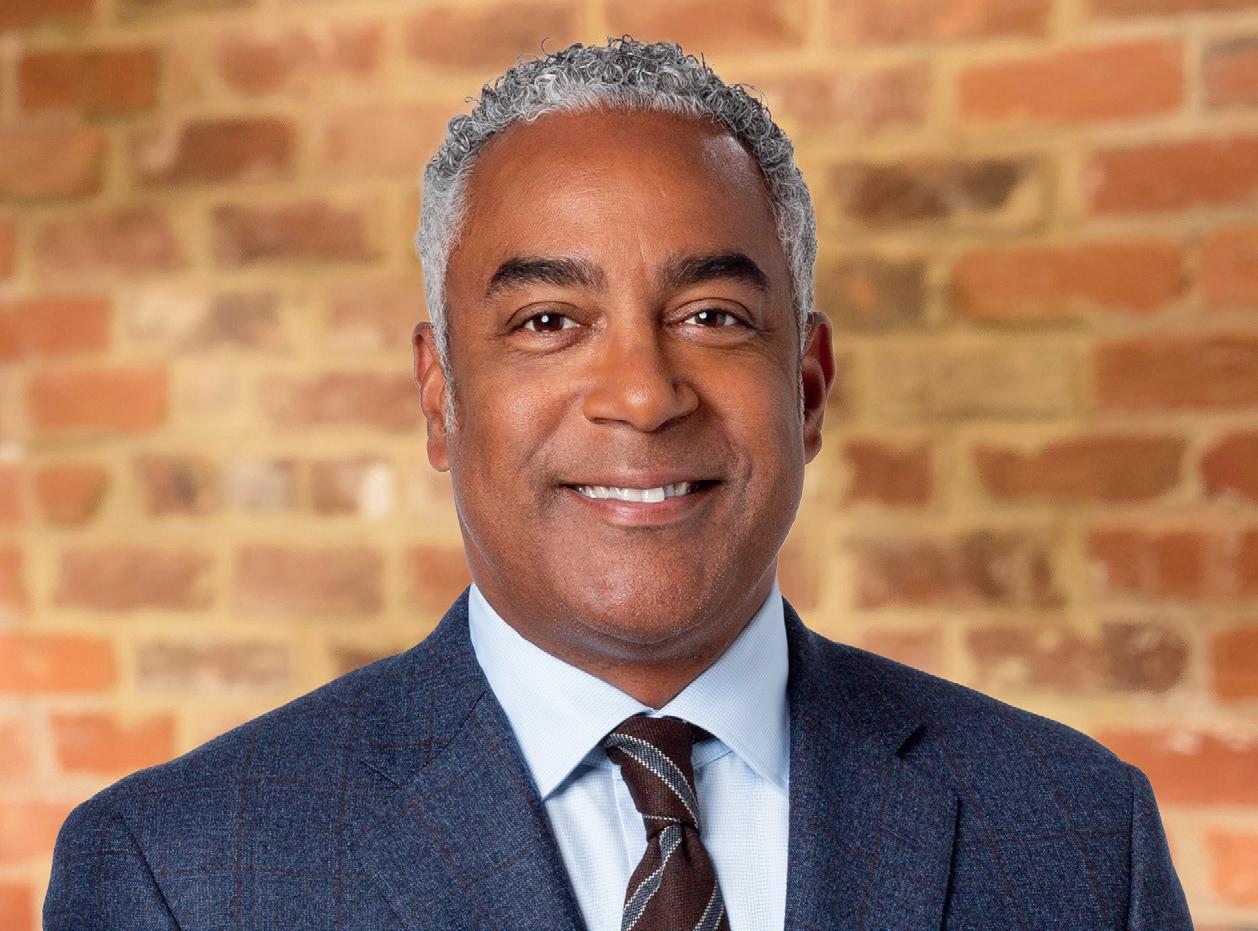
DERRICK WALKER, L’00, held onto the email that solidified his decision to become a trial lawyer. During Walker’s 2L year, as former law professor Paul Zwier prepared to leave UR, Zwier sent Walker a note: “I’ve watched you during the advanced trial practice class, and your preparation, your instincts, your technique—they are all exceptional. Your classmates recognize this as well. You have ‘the gift.’”
Encouraged by Zwier’s words, Walker began his career at a Richmond insurance defense firm. However, after litigating against a prominent Norfolk-based personal injury firm, he seized the opportunity to join that firm’s team and tell the stories of injured individuals rather than defend companies. In 2015, Walker returned to Richmond and joined Allen & Allen, where he is now a managing shareholder and a member of the firm’s executive committee.
As his career thrived, Walker sought opportunities for professional development with the Virginia Trial Lawyers Association and the American Association for Justice. Eventually, a senior AAJ member encouraged him to pursue a leadership role with this advice: “When I think about what’s best for the future of our organization, your leadership is a part of it.”
Reflecting on that moment, Walker emphasizes the importance of recognizing one’s own leadership potential.
“When you realize that your peers and colleagues trust your perspectives, your insight, and, most of all, your commitment to doing what’s right for the organization, then you are a leader,” he said.
Now President of VTLA, Walker has come a long way from his days as an eager law student. Yet, on his most challenging days, he still looks back at Zwier’s email with the message that started it all.
“We all have moments of doubt because you can’t win every case,” he said. “You need something that reminds you why you do what you do, why it matters, and that you have the skill and ability to make a difference in the lives of people who need you.”
A longer version of this story is available at lawmagazine. richmond.edu.
—Amy Ogle, ’26
WAYNE E. COMER, L’52 , of Merritt Island, Florida, April 3, 2024
JACK A. MOODY, L’53 , of Siler City, North Carolina, Aug. 2, 2024
WILLIAM N. “BILL” GREGORY JR., L’55 , of Henrico, Virginia, May 24, 2024
WILLIAM R. SHELTON SR., L’59 , of Chester, Virginia, July 14, 2024
CHRIS J. MITSOS, L’60 , of New Castle, Pennsylvania, Sept. 6, 2024
HUGH S. CAMPBELL, L’61 , of Beaverdam, Virginia, April 20, 2024
RICHARD S. MILLER, L’62 , of Lynchburg, Virginia, Sept. 27, 2024
ARTHUR G. “BUTCH” LAMBIOTTE, R’60 AND L’63 , of Plano, Texas, Jan. 27, 2024
VON L. PIERSALL JR., R’61 AND L’64 , of Suffolk, Virginia, July 29, 2024
LAURENCE “LARRY” KESSLER, L’65 , of Powhatan, Virginia, May 25, 2024
ROBERT L. SONDEJ, L’65 , of Portsmouth, Virginia, Aug. 18, 2024
HOLMES C. HARRISON, L’66 , of Gwynn’s Island, Virginia, July 12, 2024
CHARLES S. “CHUCK” MONTAGNA, L’66 , of Norfolk, Virginia, Nov. 13, 2024
JAMES R. “BOB” SAUL, L’69 , of Woodbridge, Virginia, June 4, 2024
J. DURWOOD FELTON III, R’67 AND L’71 , of Richmond, Virginia, April 25, 2024
JOHN E. GOOD JR., R’69 AND L’72 , of Hummelstown, Pennsylvania, July 8, 2024
J.S. “STEPHEN” BUIS, L’73 , of Port Haywood, Virginia, Aug. 29, 2024
KENNETH W. “WAYNE” GLASS, L’74 , of Staunton, Virginia, May 1, 2024
TERRENCE R. BATZLI, B’73 AND L’75 , of Richmond, Virginia, Aug. 27, 2024
CHARLES A. “CHARLIE” BLANTON III, L’78 , of Richmond, Virginia, May 18, 2024
BARBARA HAYES VANN, W’73, G’75, AND L’81 , of Richmond, Virginia, Sept. 21, 2024
DAVID W. CLARKE, L’83 , of Richmond, Virginia, Oct. 16, 2024
SHARON A. FITZGERALD, L’85 , of Henrico, Virginia, April 8, 2024
GENEVIEVE “RUTHIE” KIMBROUGH GRIFFIN BURDGE, L’89 , of Newport News, Virginia, Oct. 1, 2024
THOMAS “TOM” LACHENEY, L’93 , of Powhatan, Virginia, April 12, 2024
PATRICK H. “PAT” WOODS, L’94 , of Glen Allen, Virginia, Oct. 22, 2024
Editor’s note: In the previous issue, we incorrectly reported the first name of Eileen Nause Wagner, L’91, who died Dec. 3, 2023. We regret the error.
“I would not have been able to attend a school like Richmond Law without the scholarship I received.”
— Joe Probus, L’25, Richmond Law Cambridge Summer Program participant
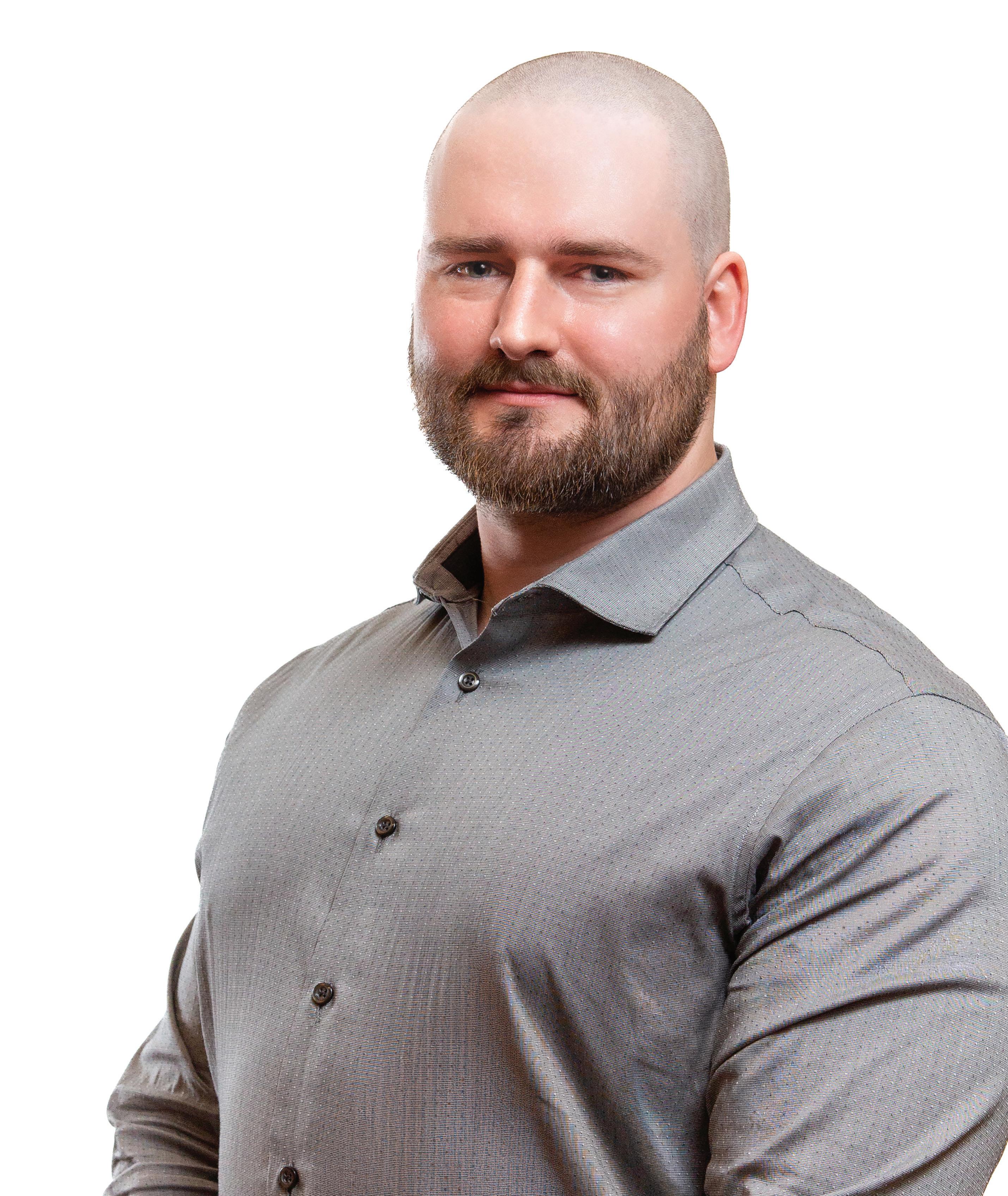
SCHOLARSHIP SUPPORT has the power to transform the law school experience for many students— like Joe Probus, L’25. A nontraditional student who worked over 40 hours a week as an undergraduate, he never had the chance to experience campus life or study abroad—until now.
Thanks to the scholarship he received, Joe spent last summer participating in the Richmond Law Cambridge Summer Program. Aspiring to eventually own a law practice, Joe believes the connections made through opportunities like this will take him just as far as his legal knowledge.
To support students like Joe, visit uronline.net/givetoURLaw.
